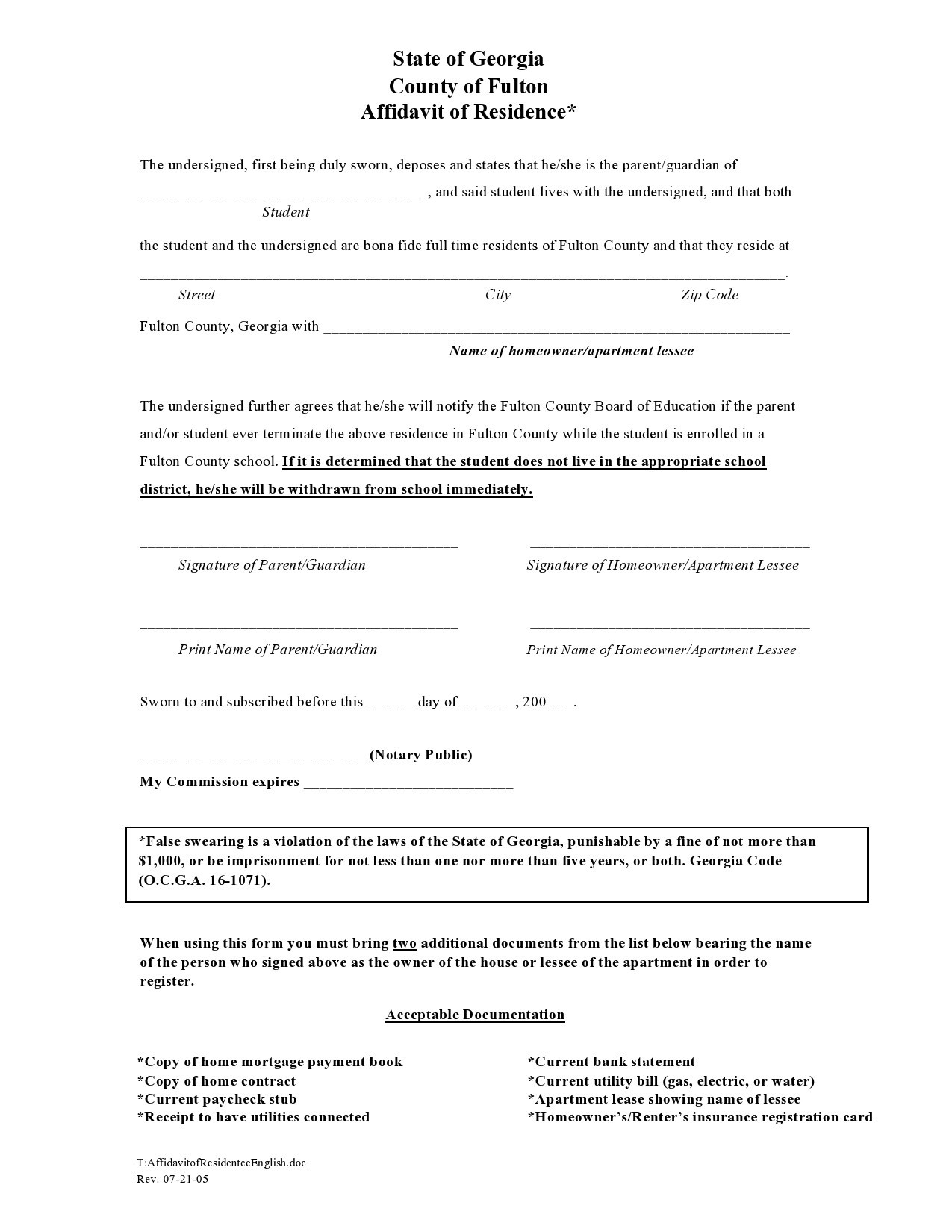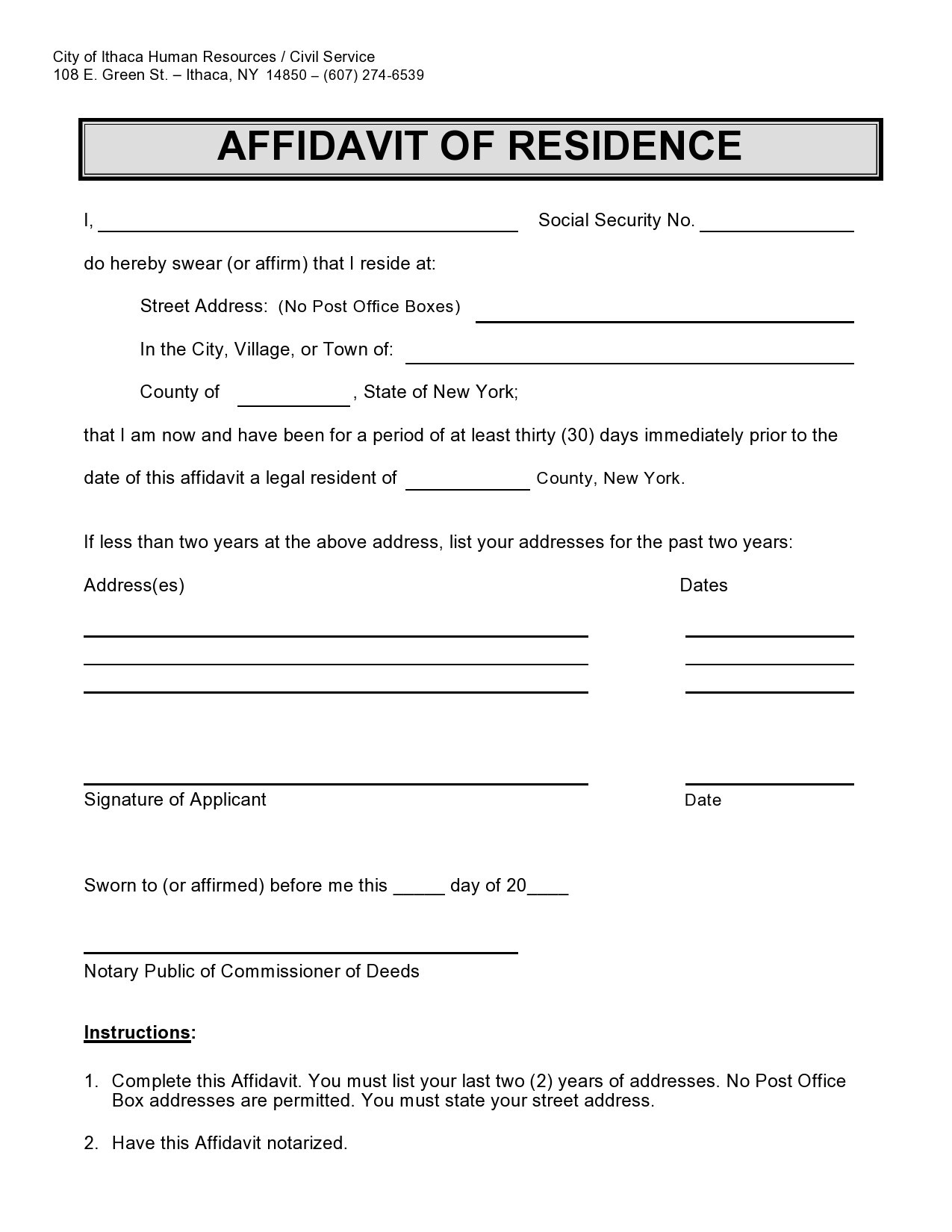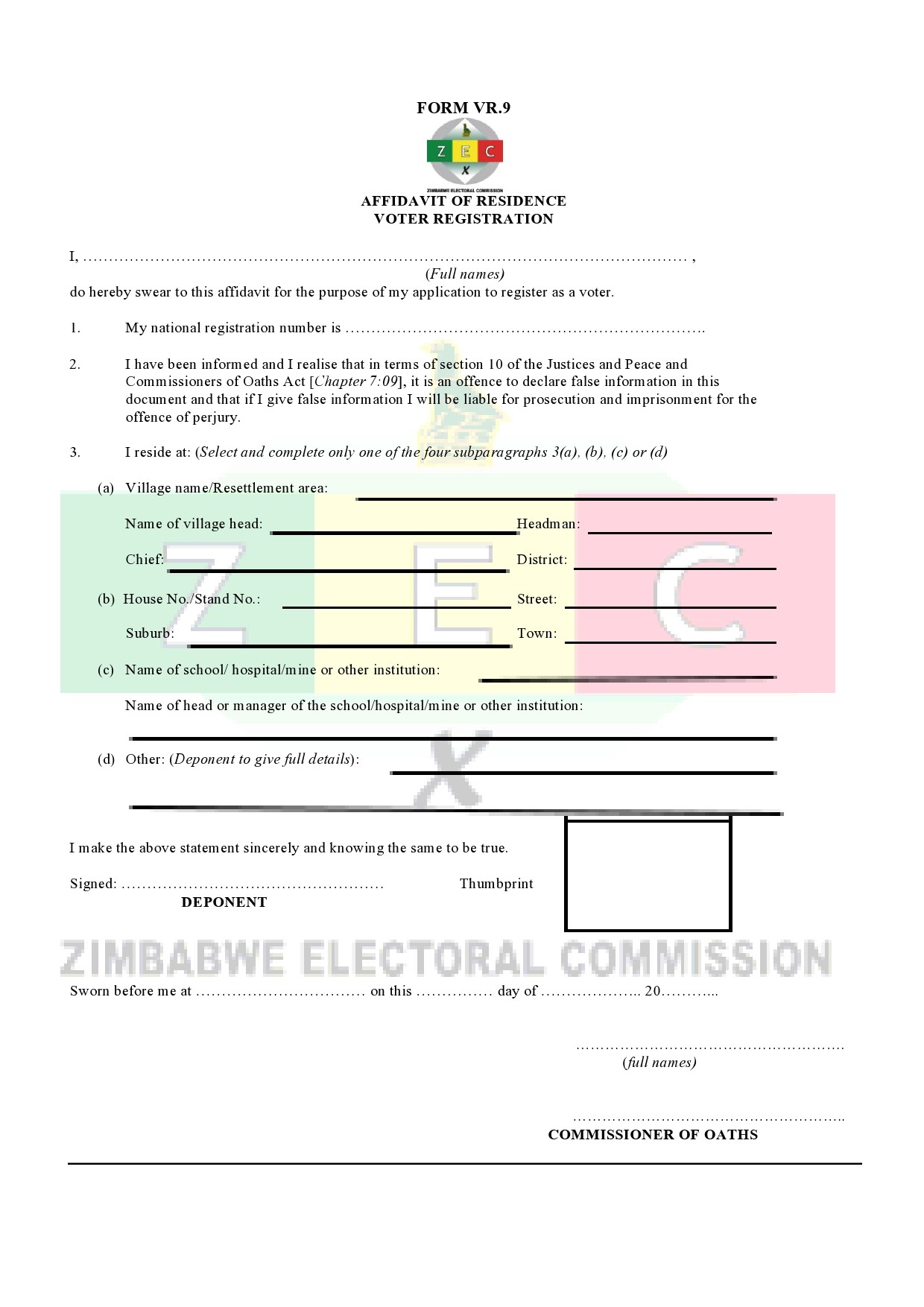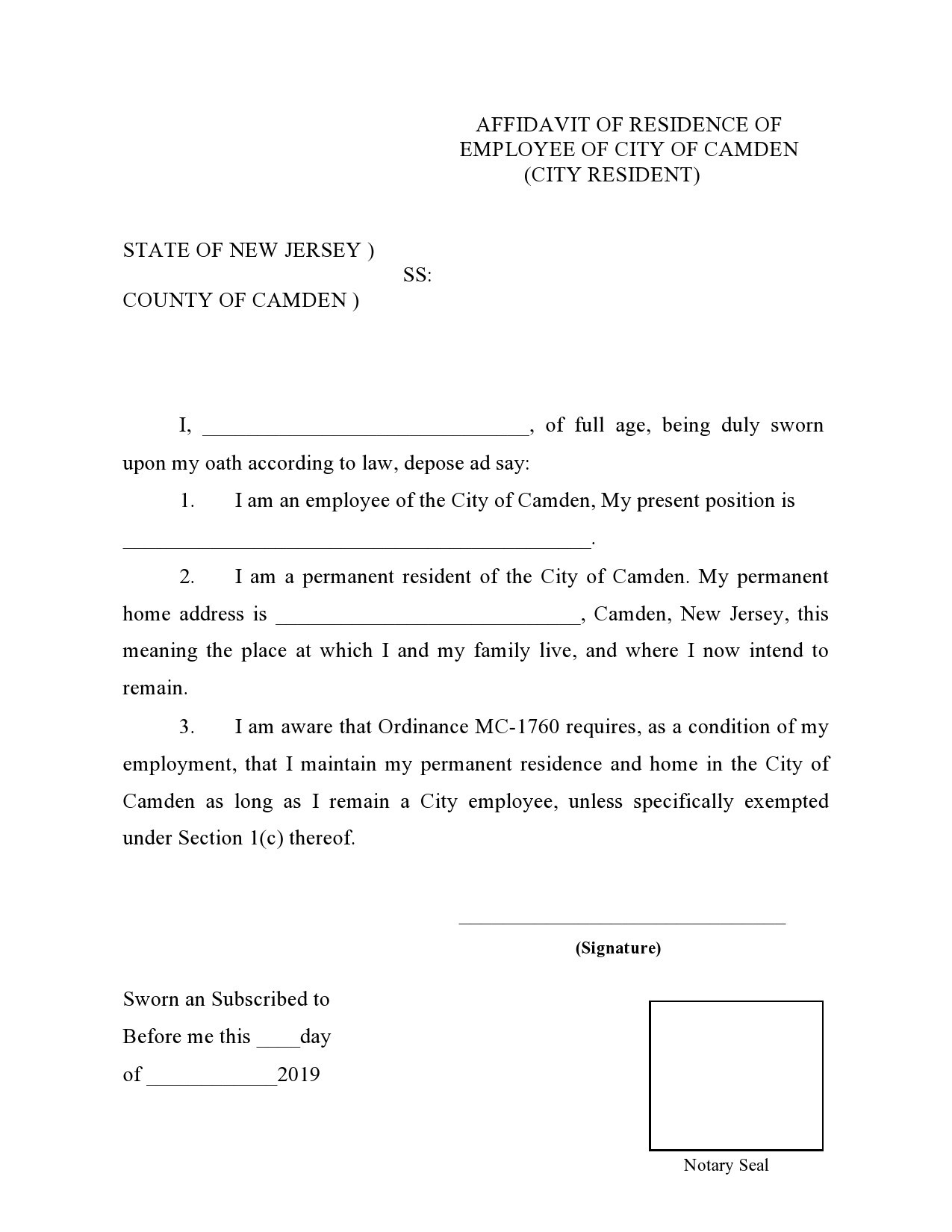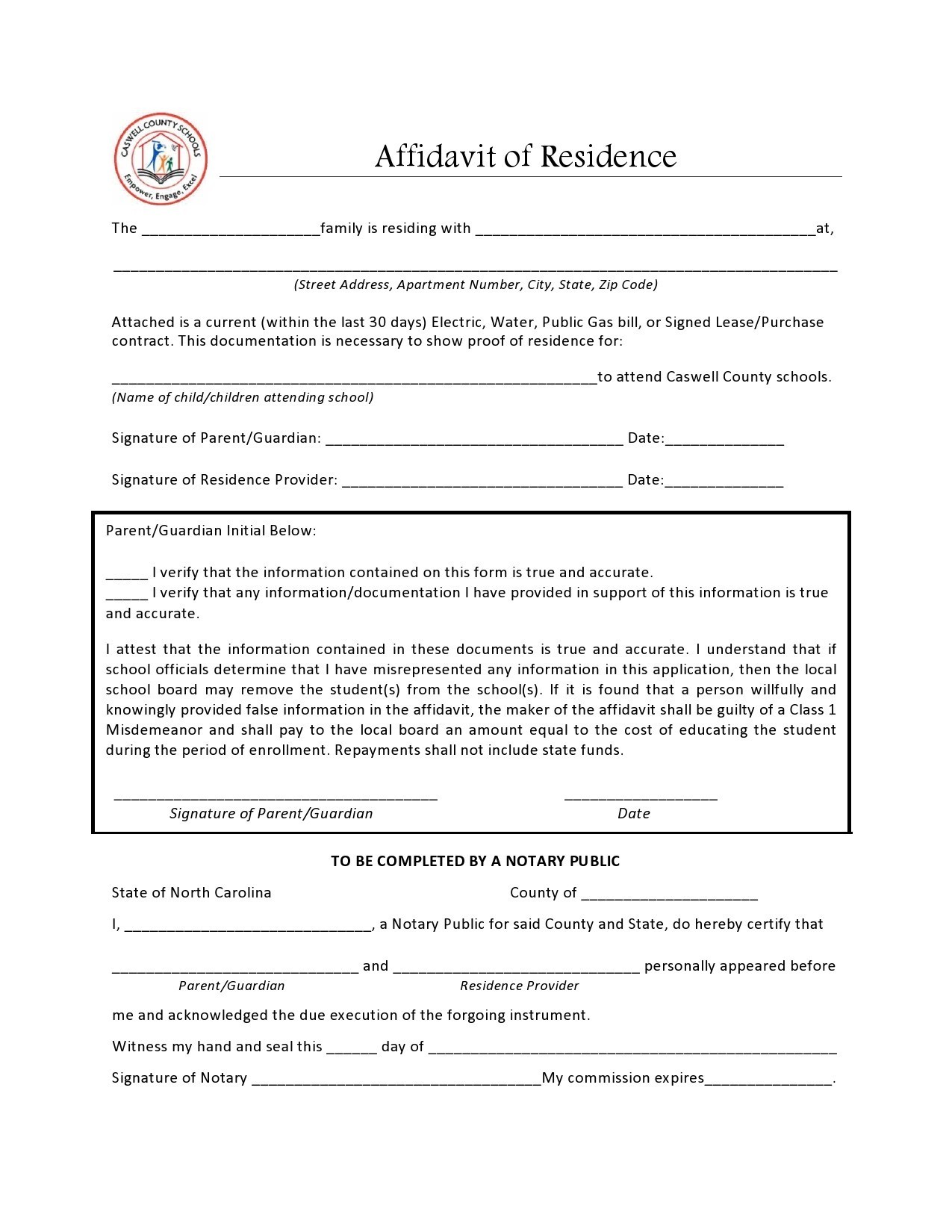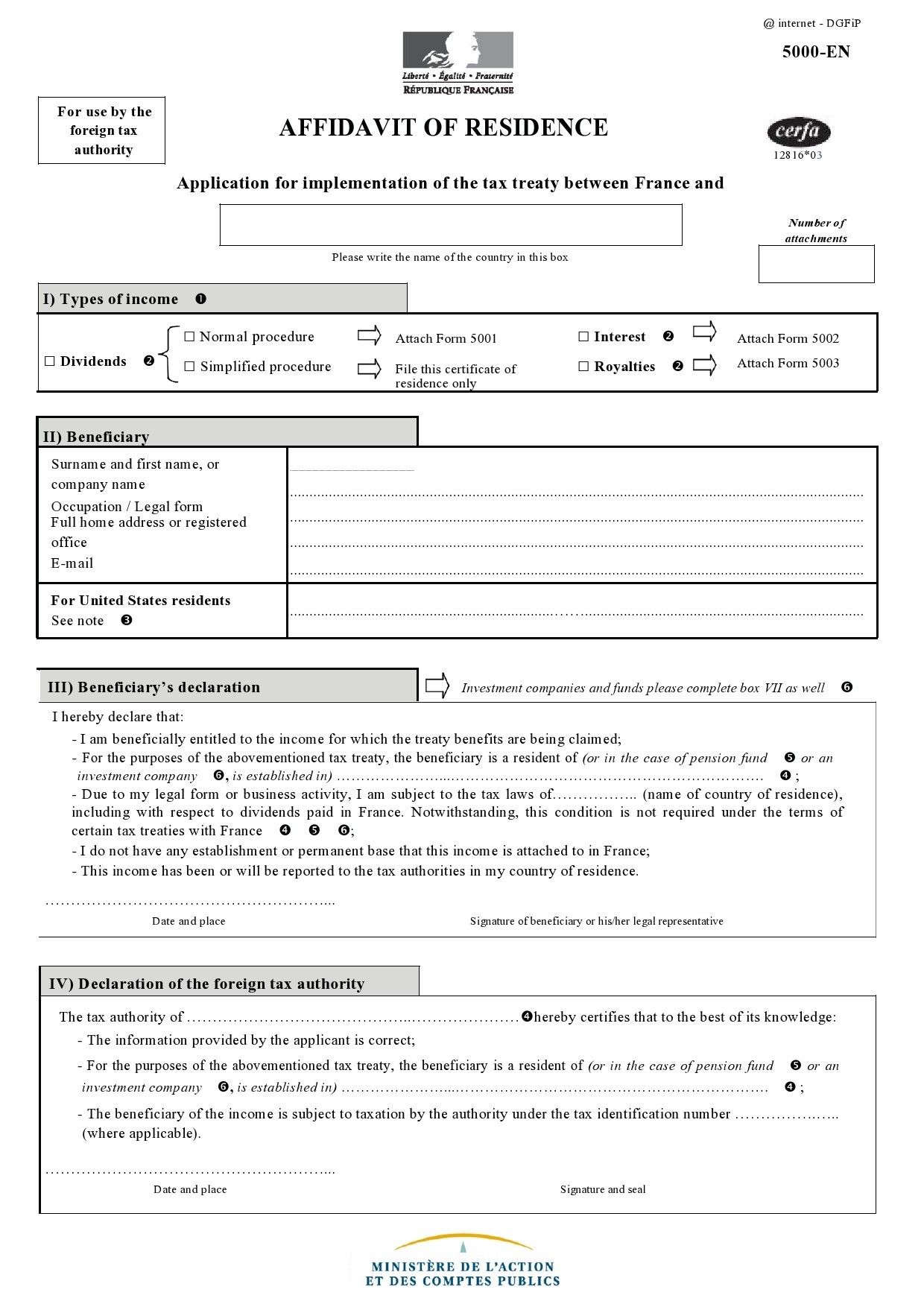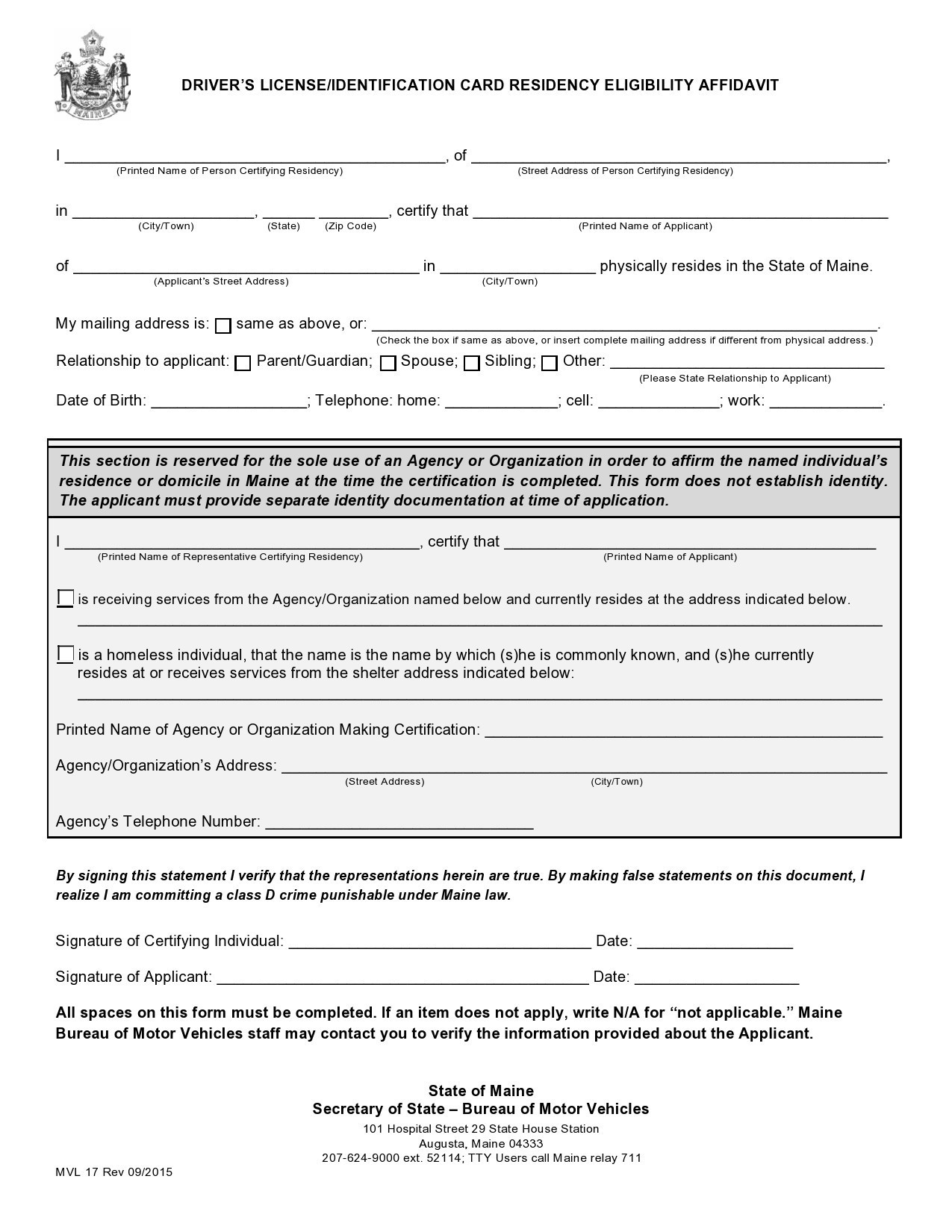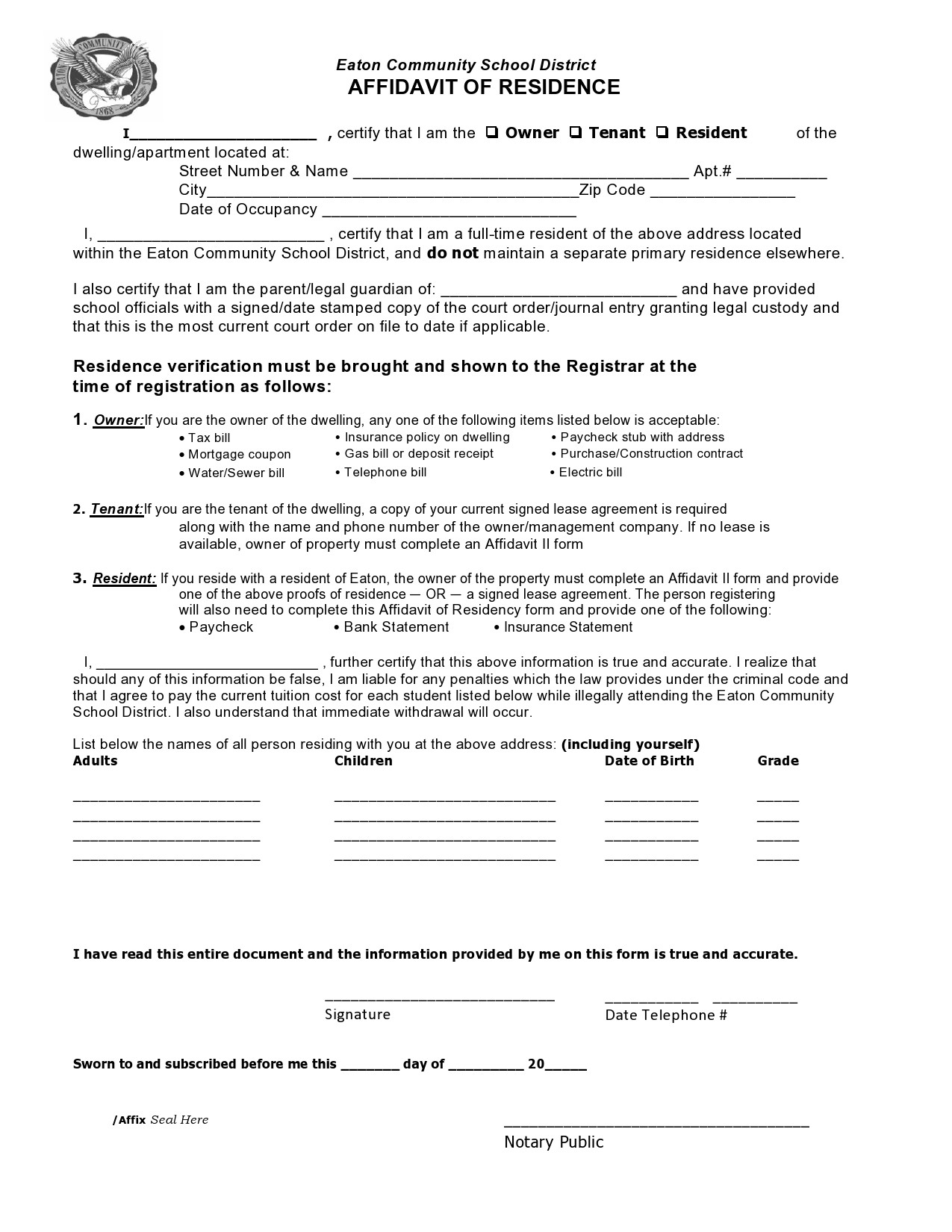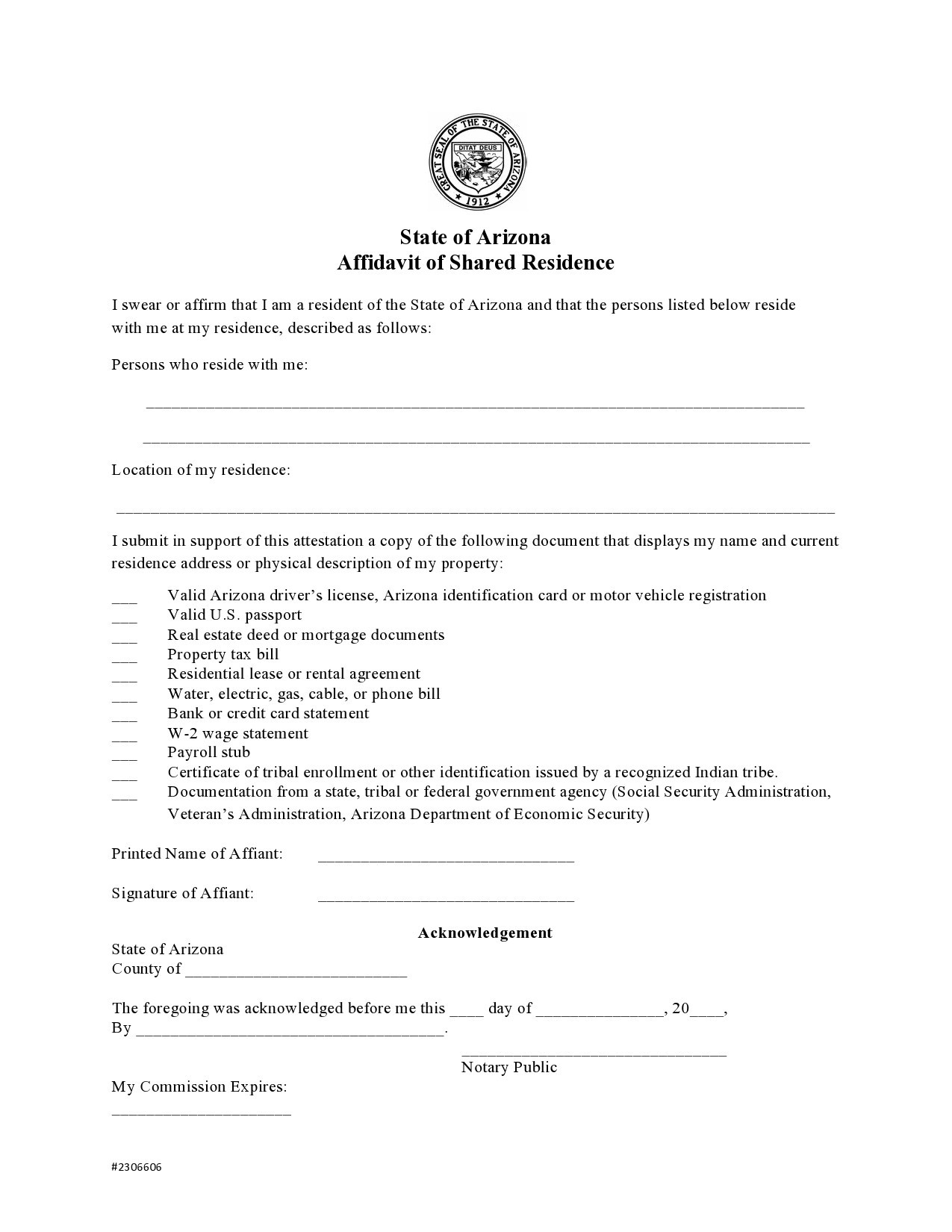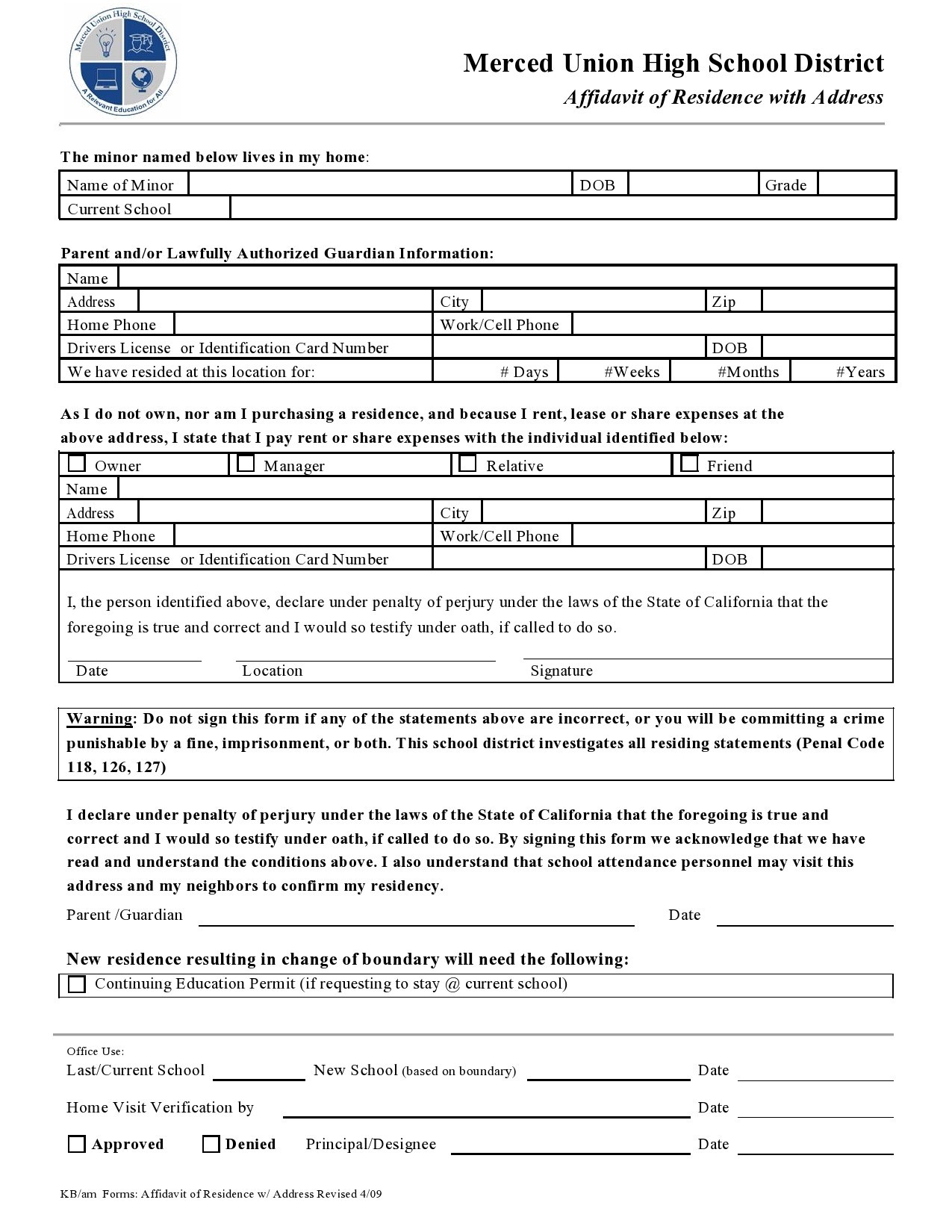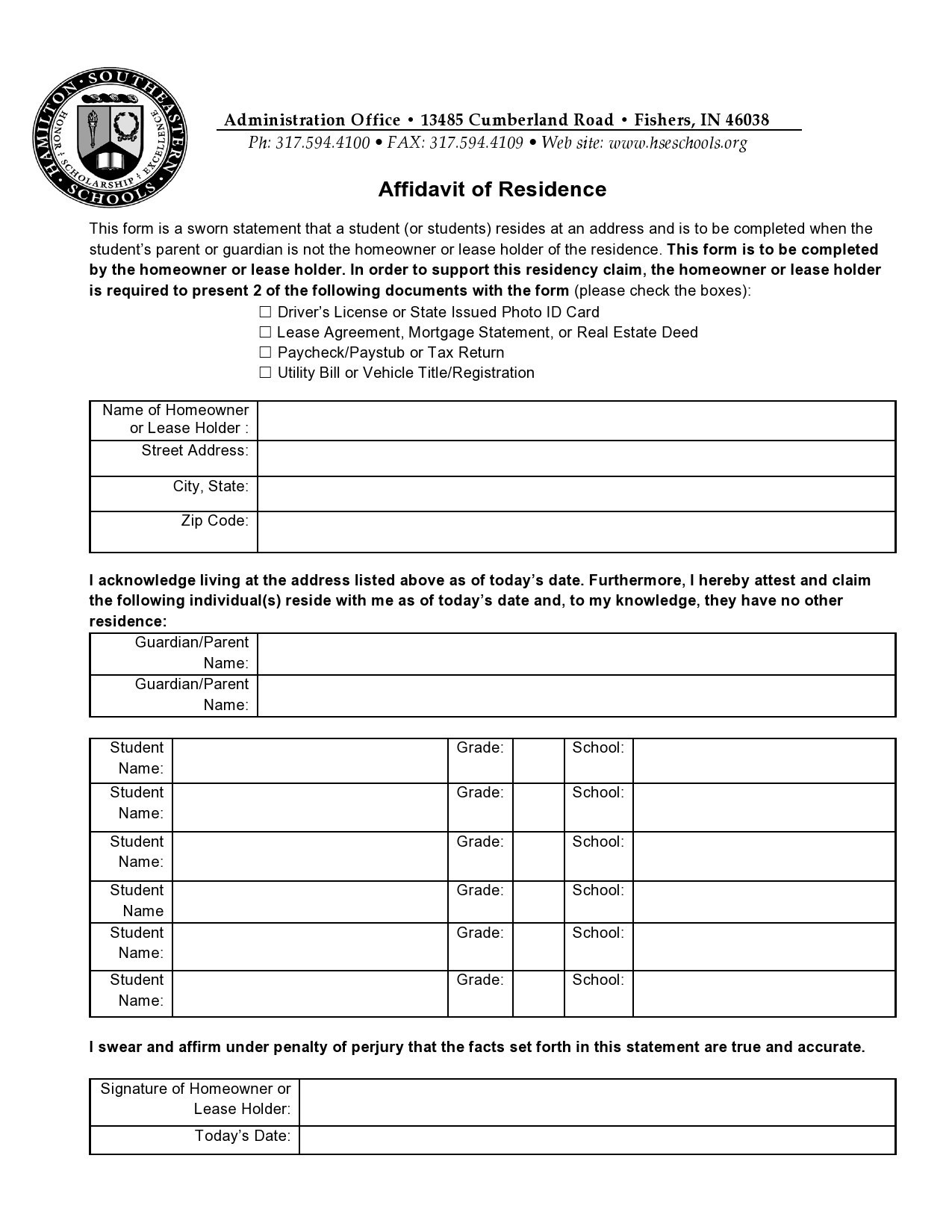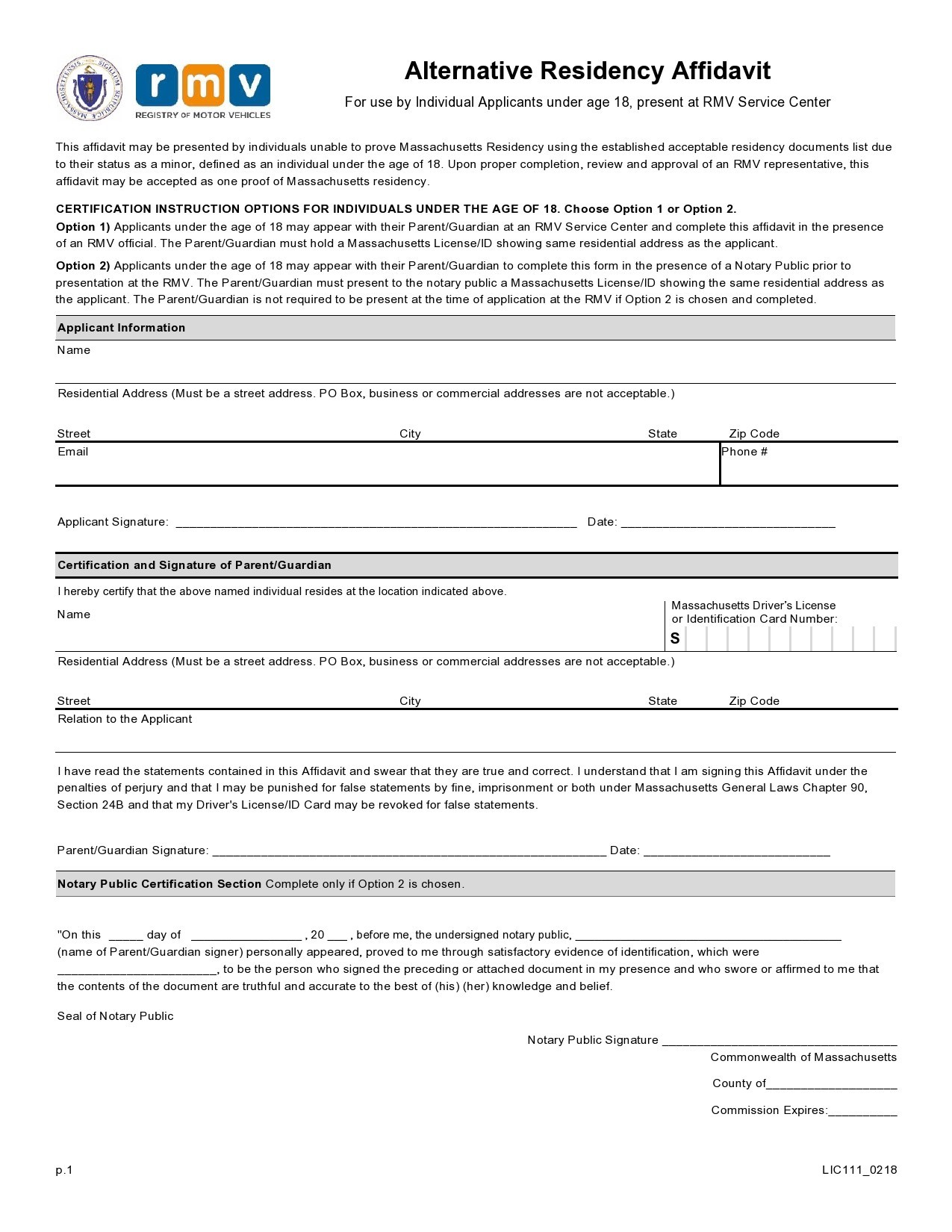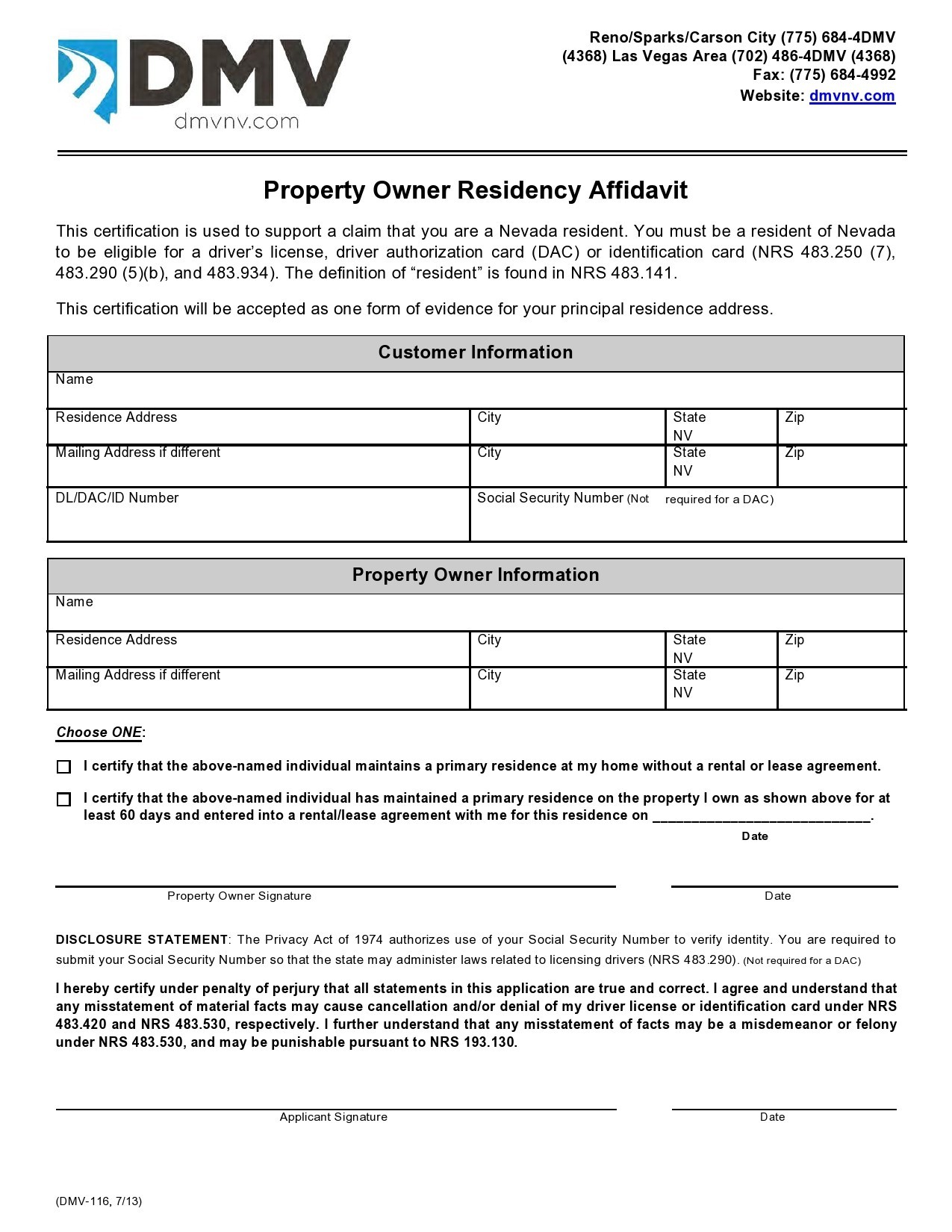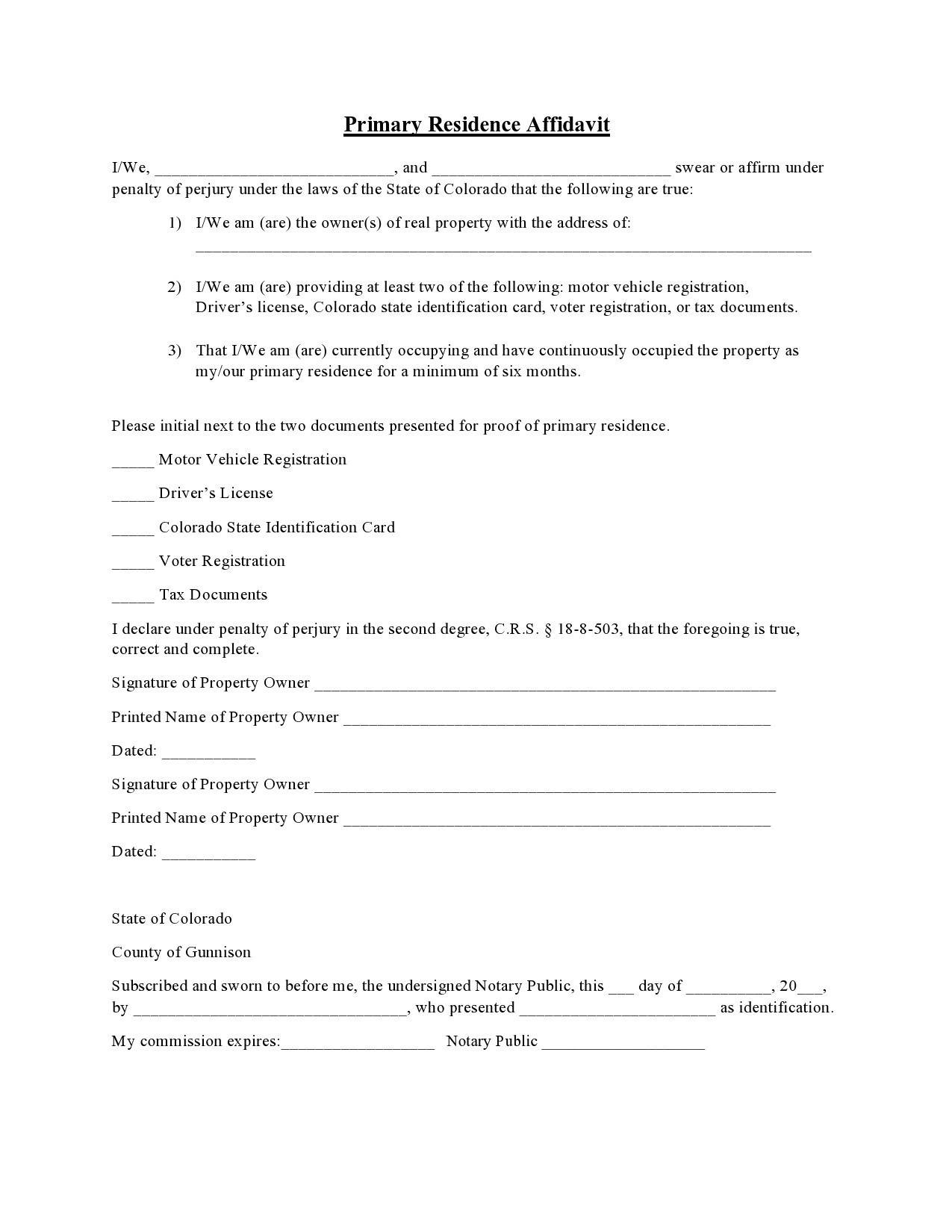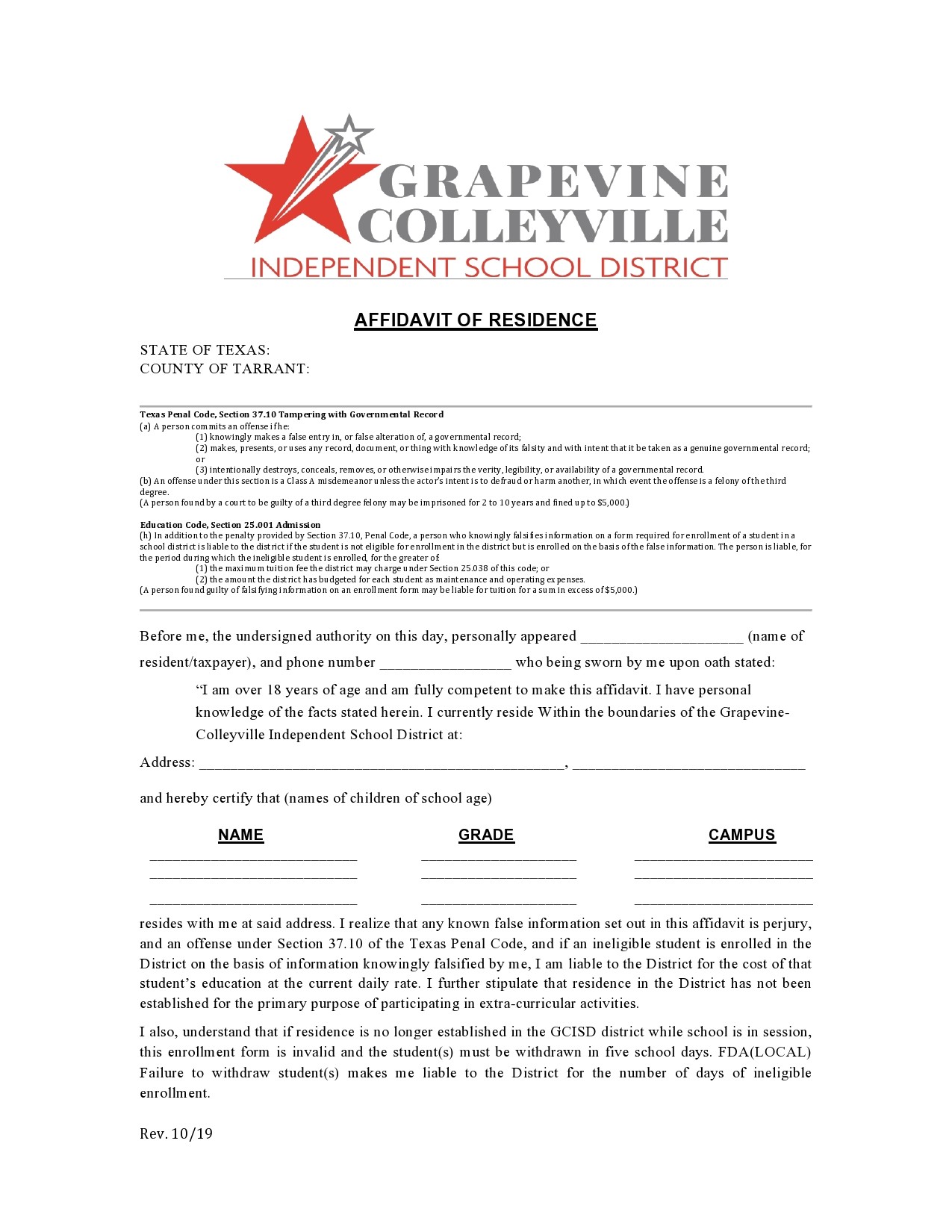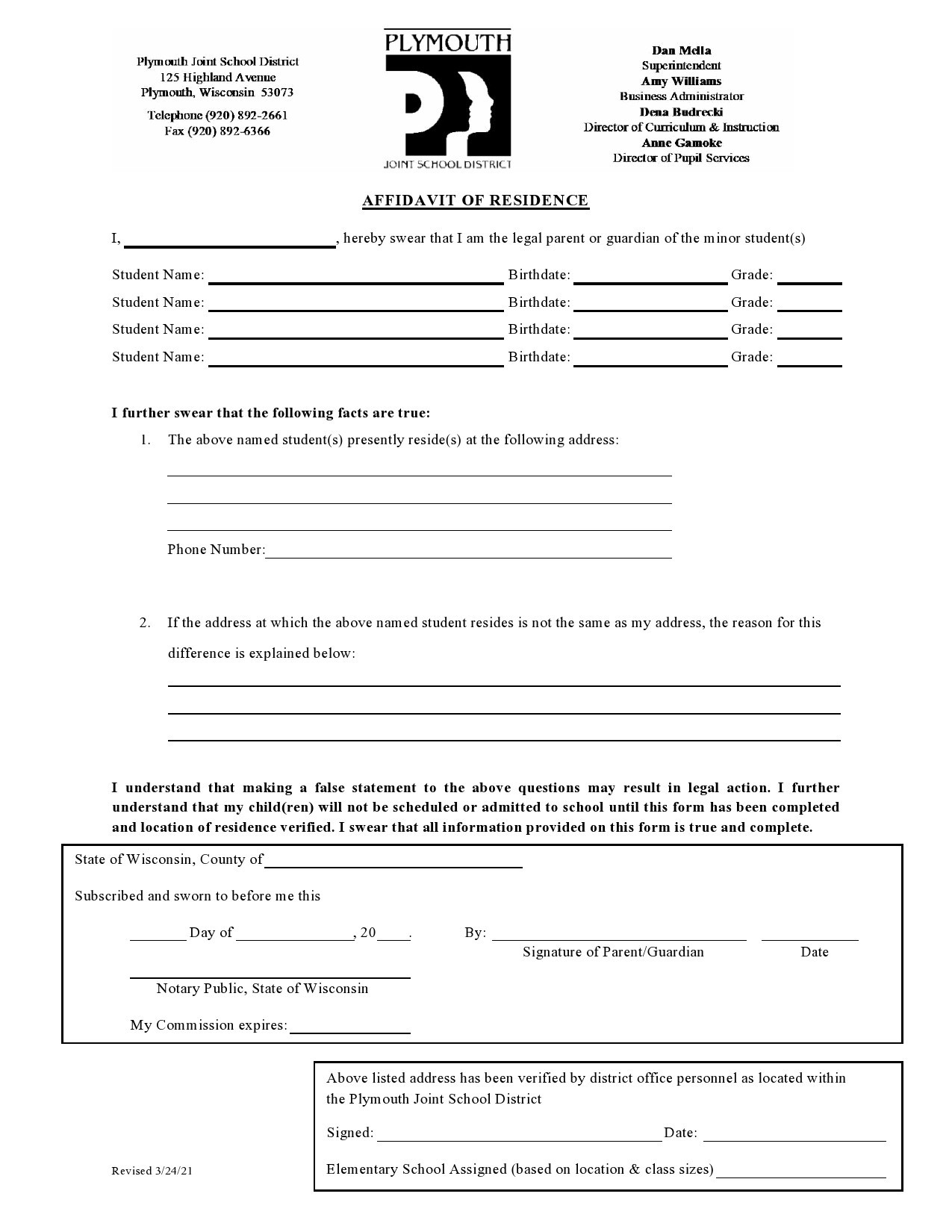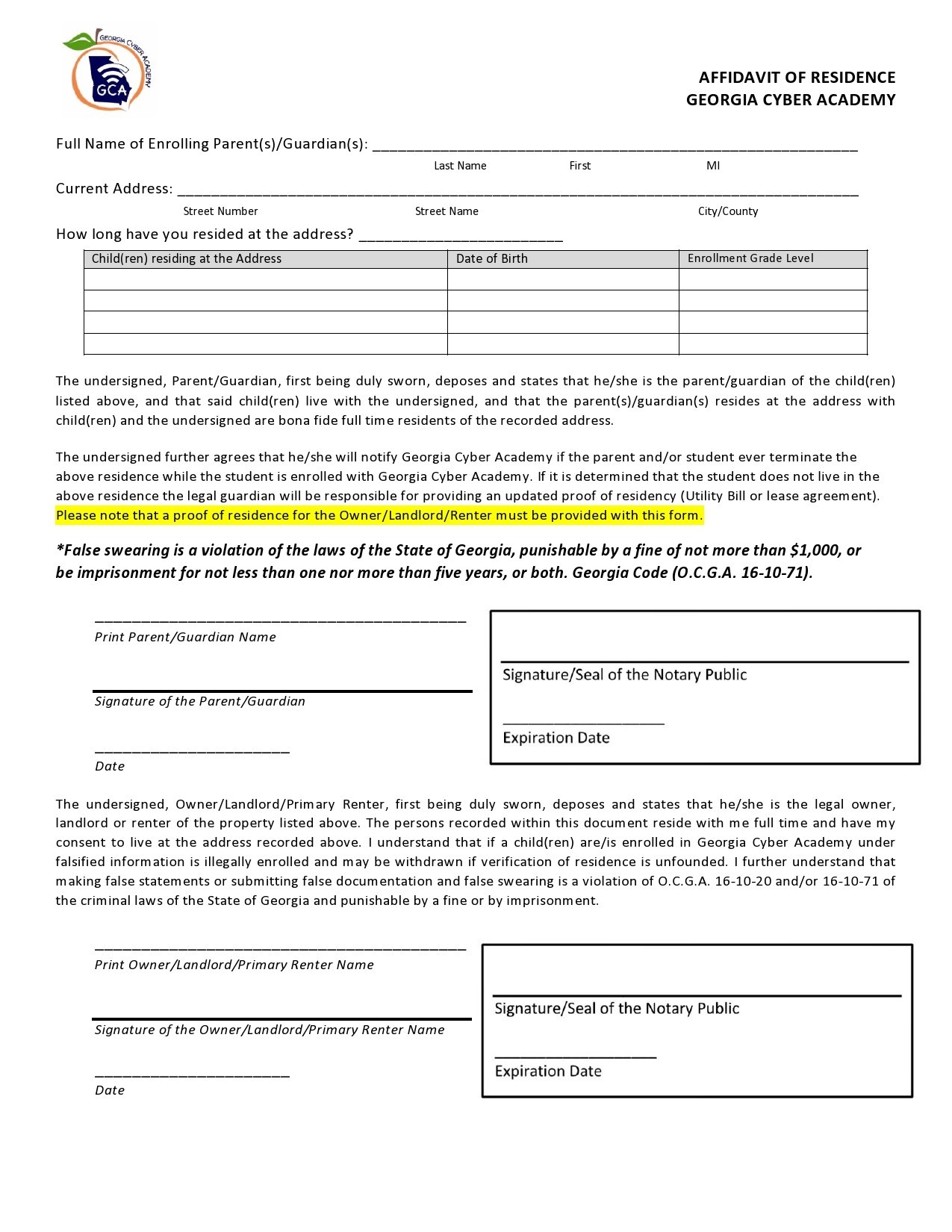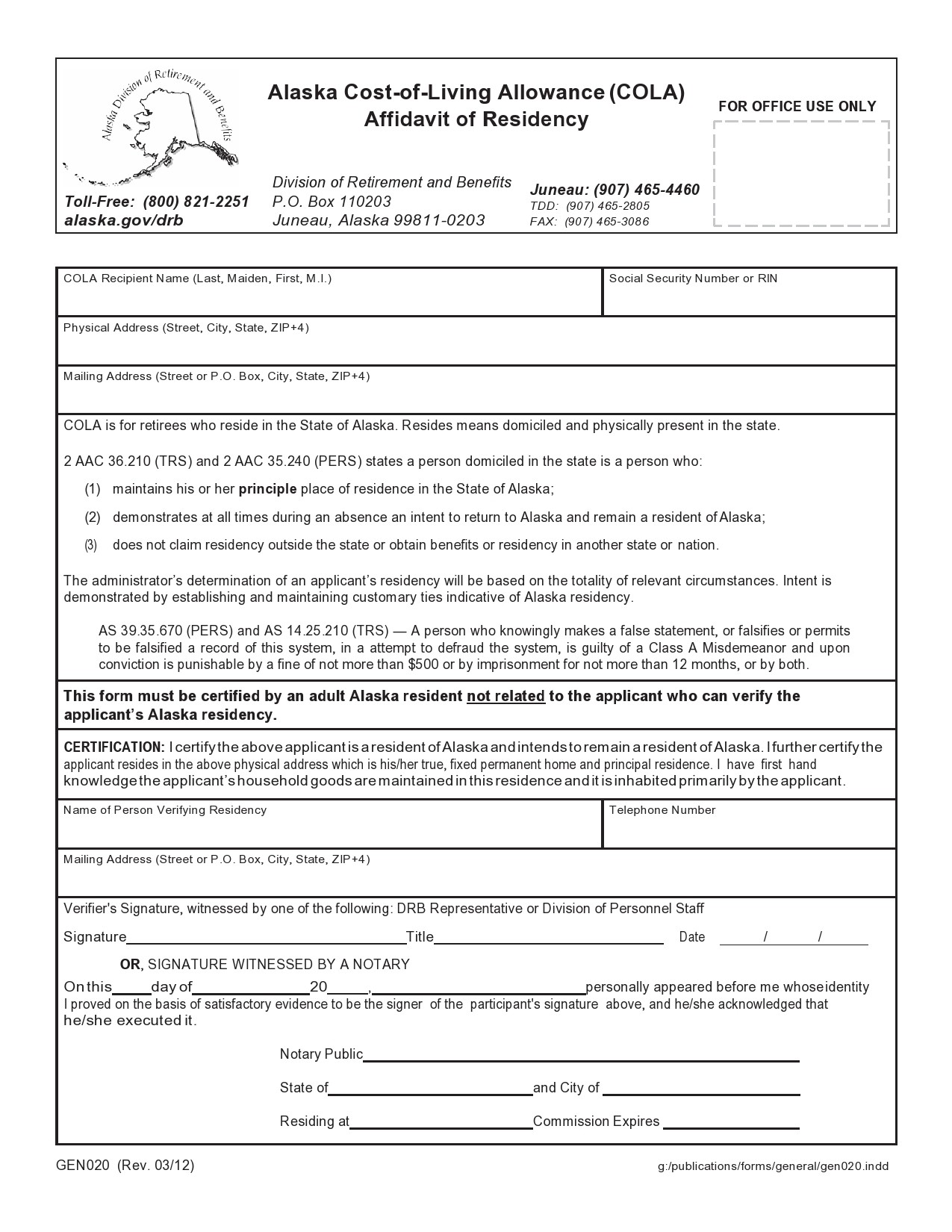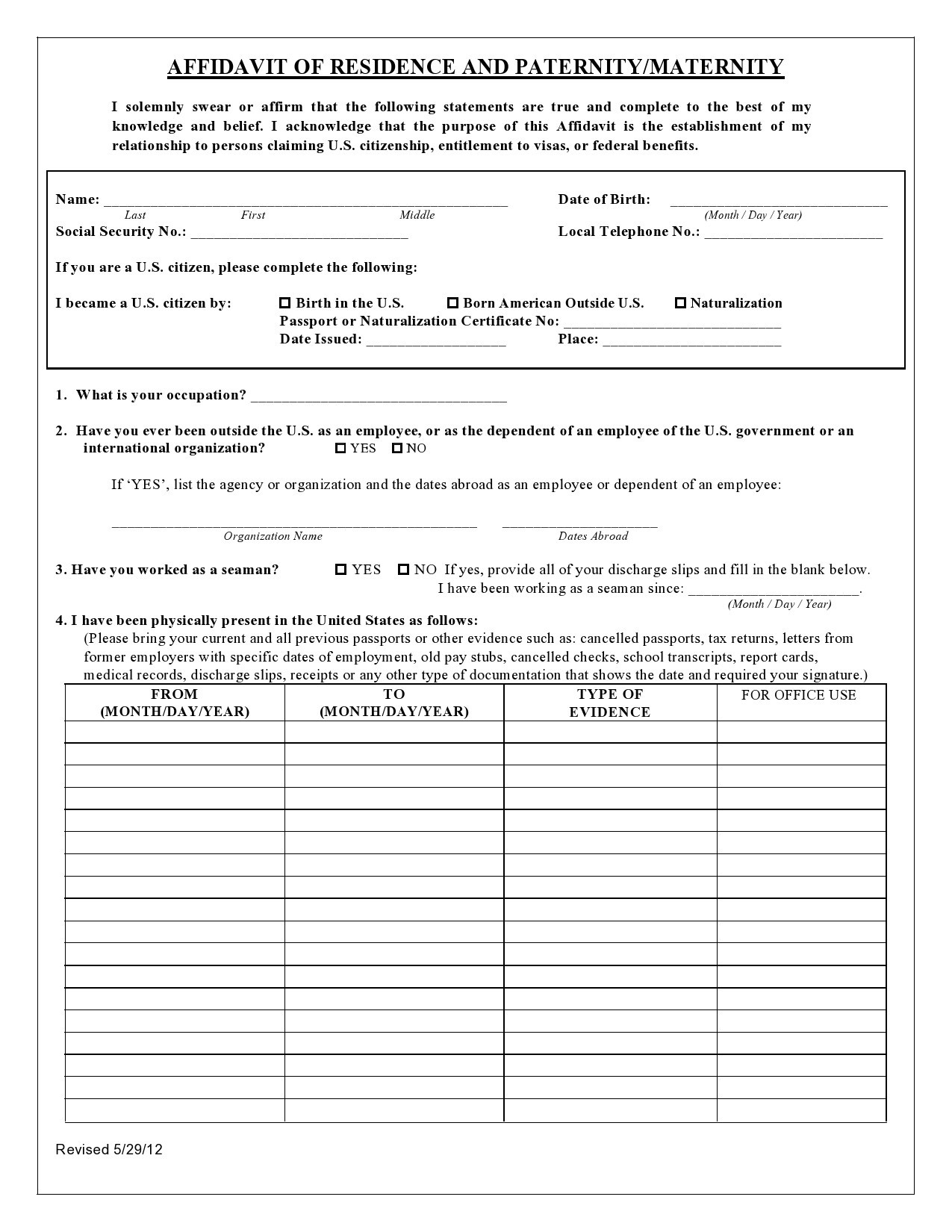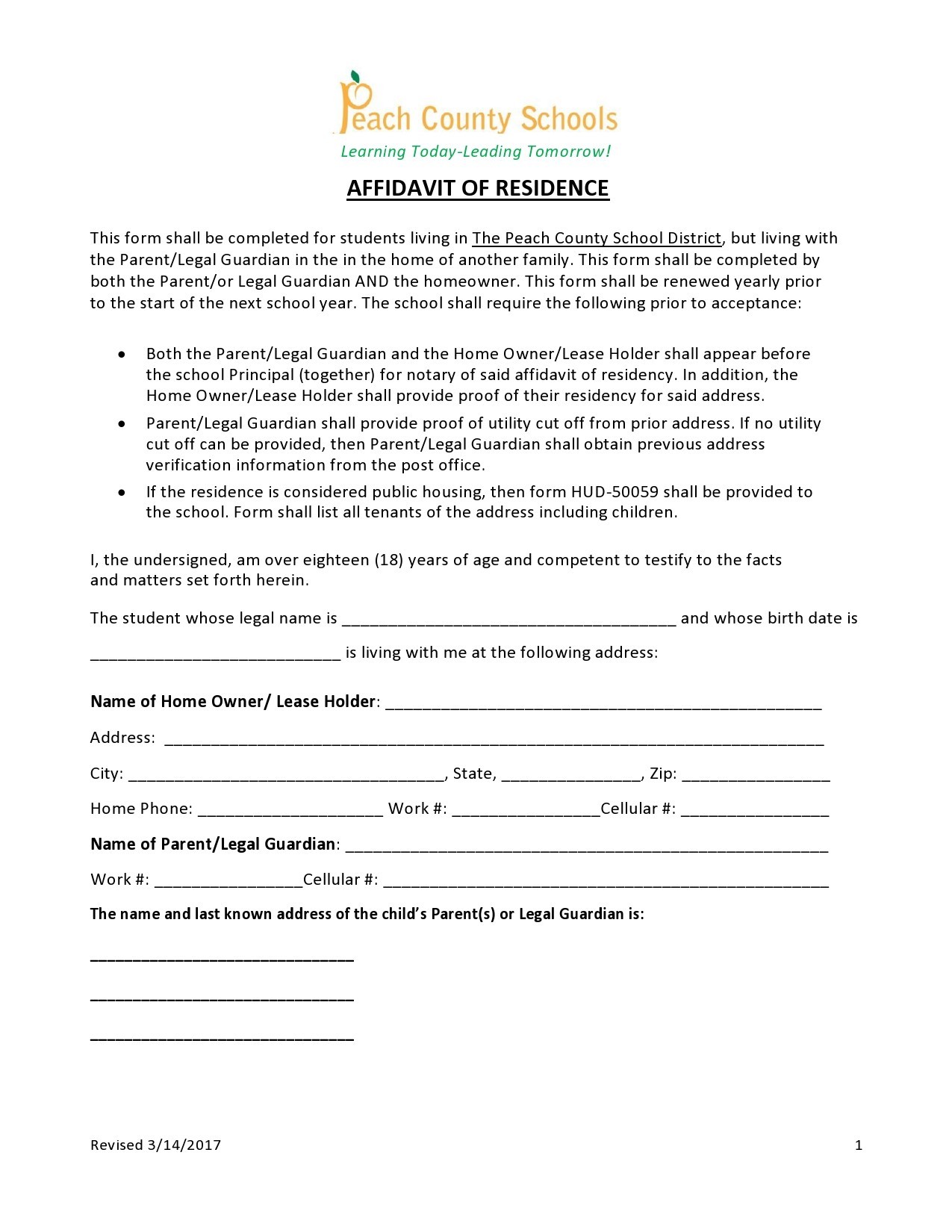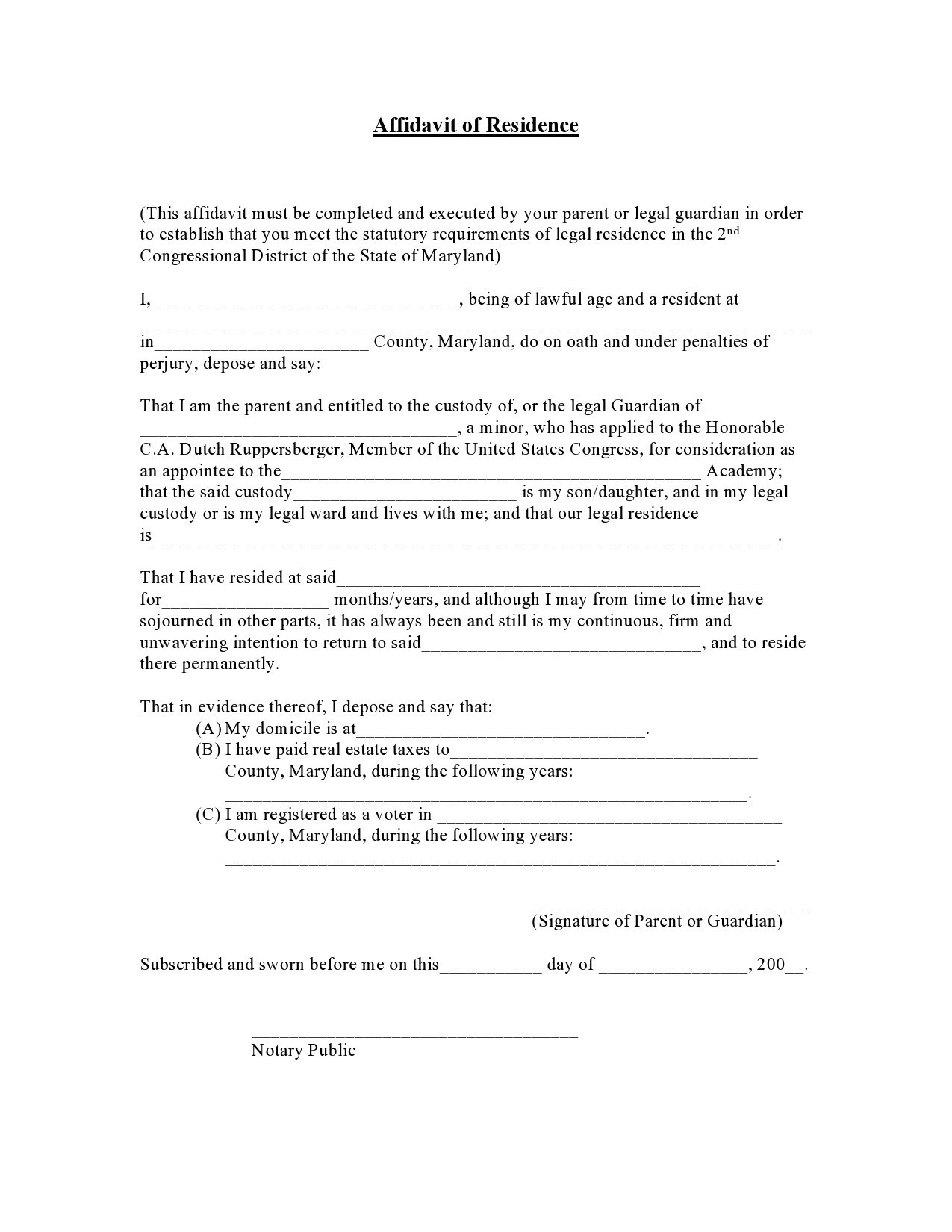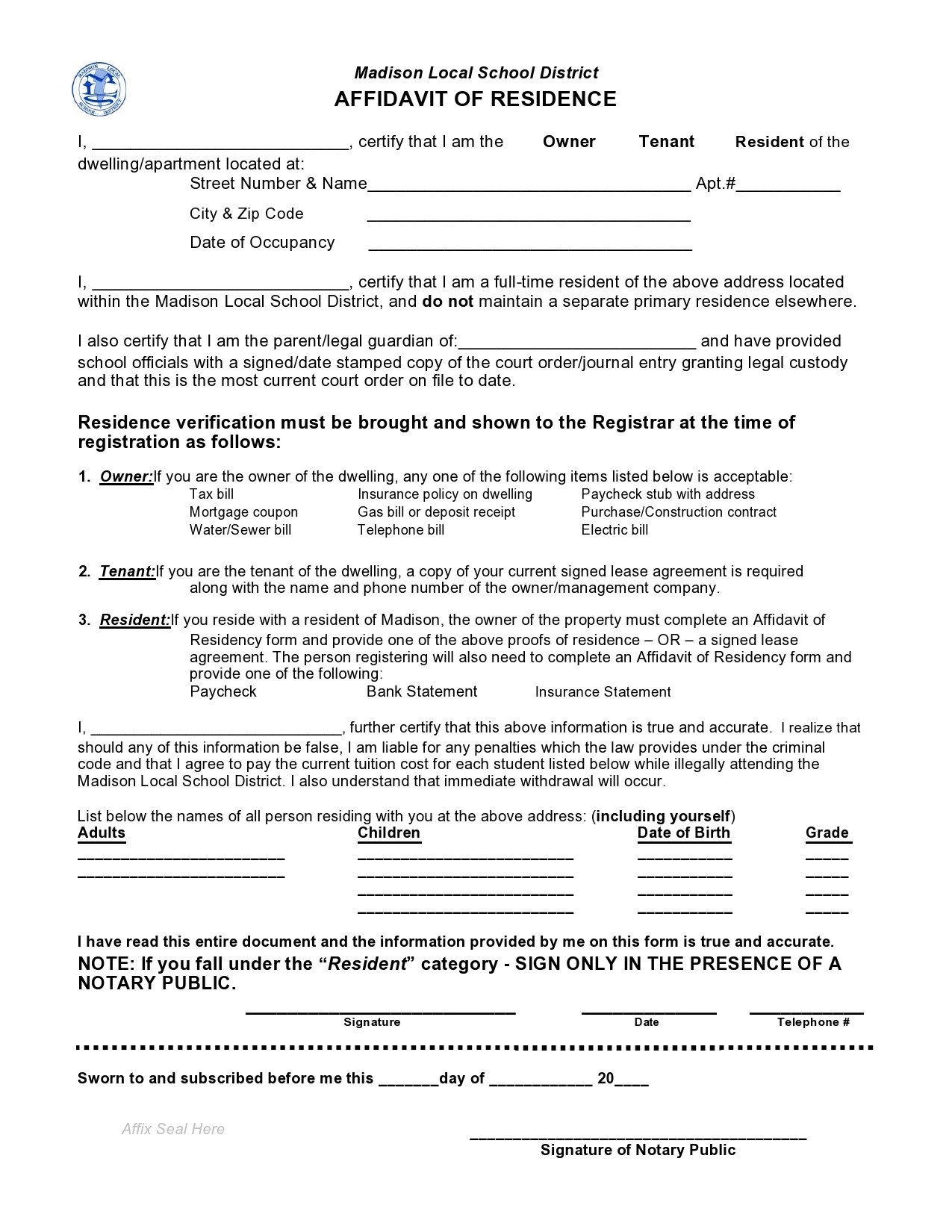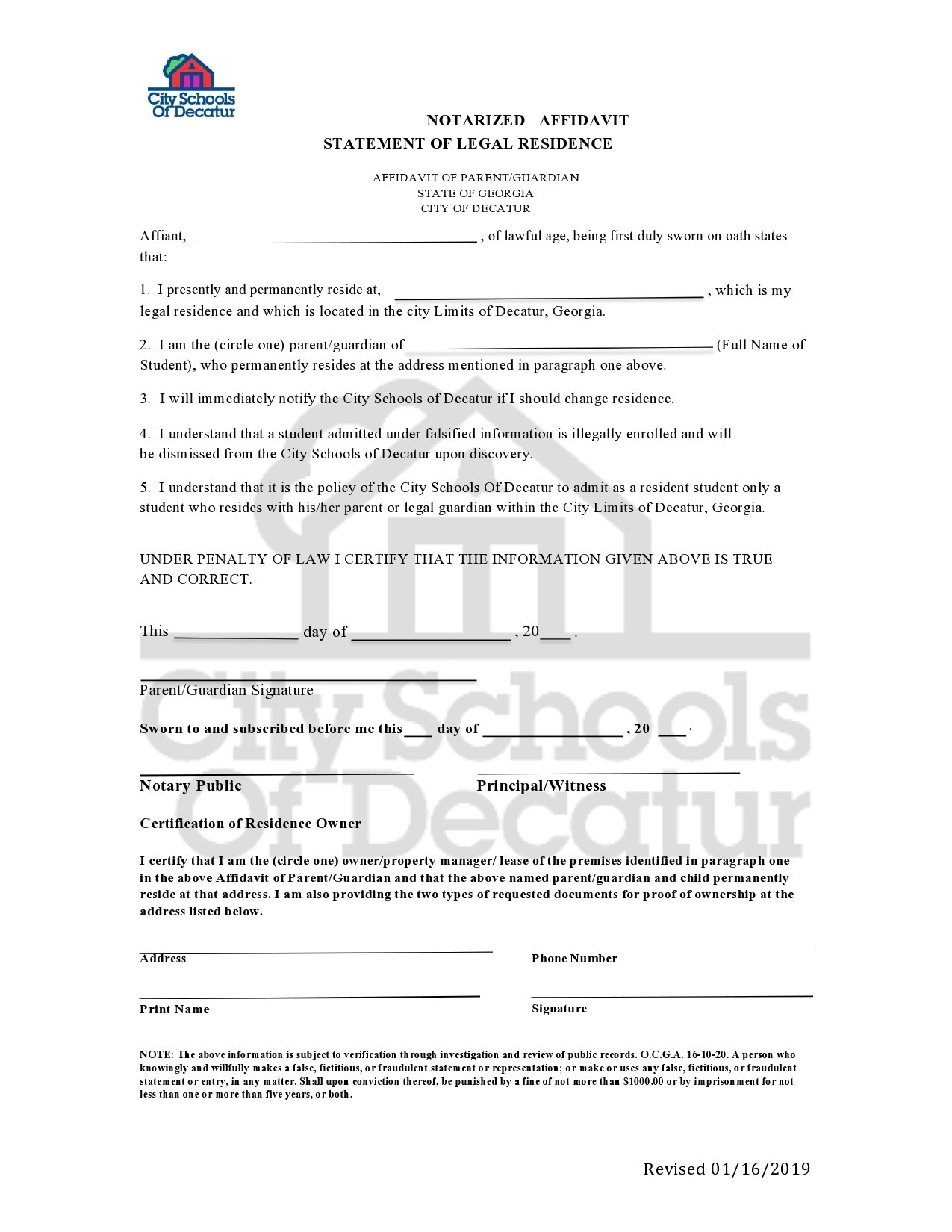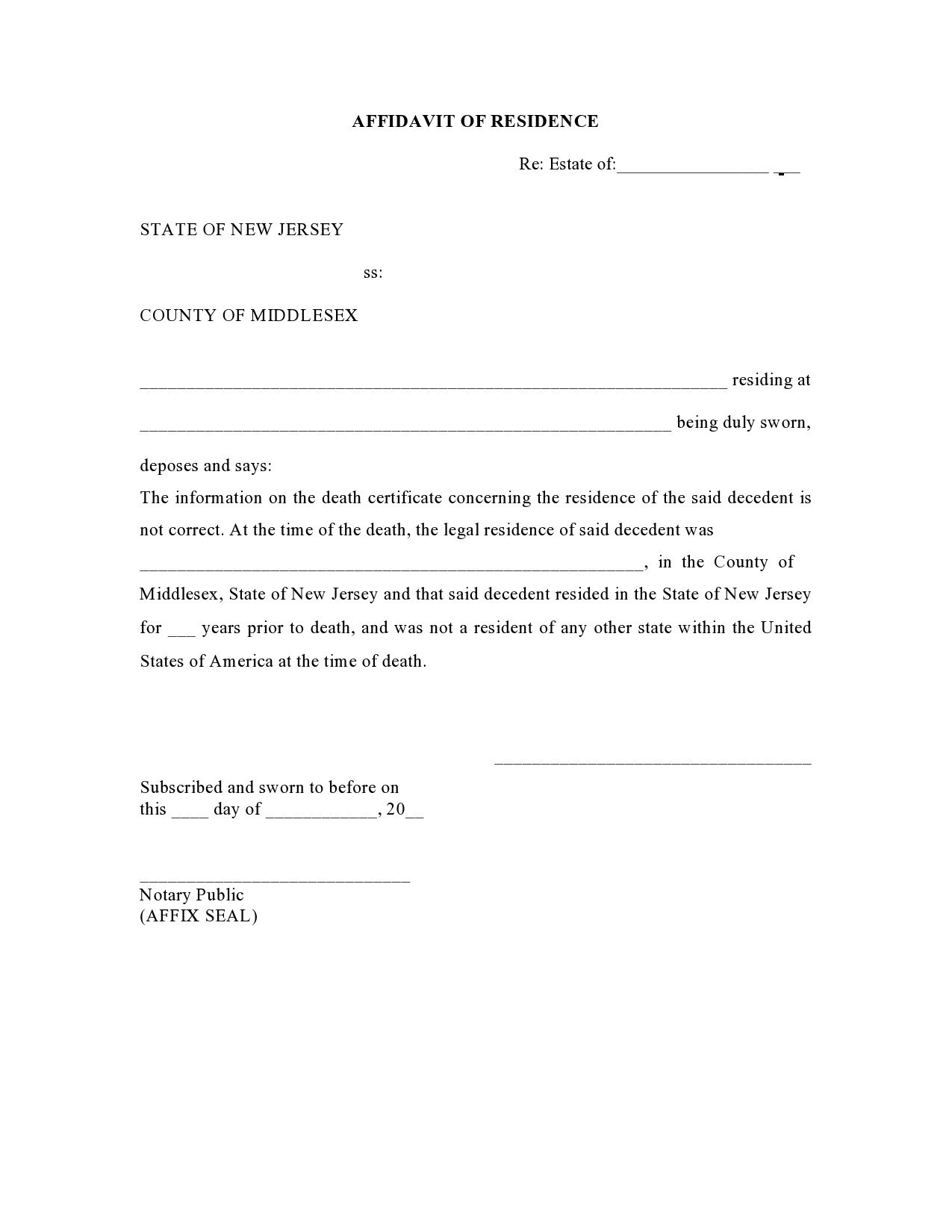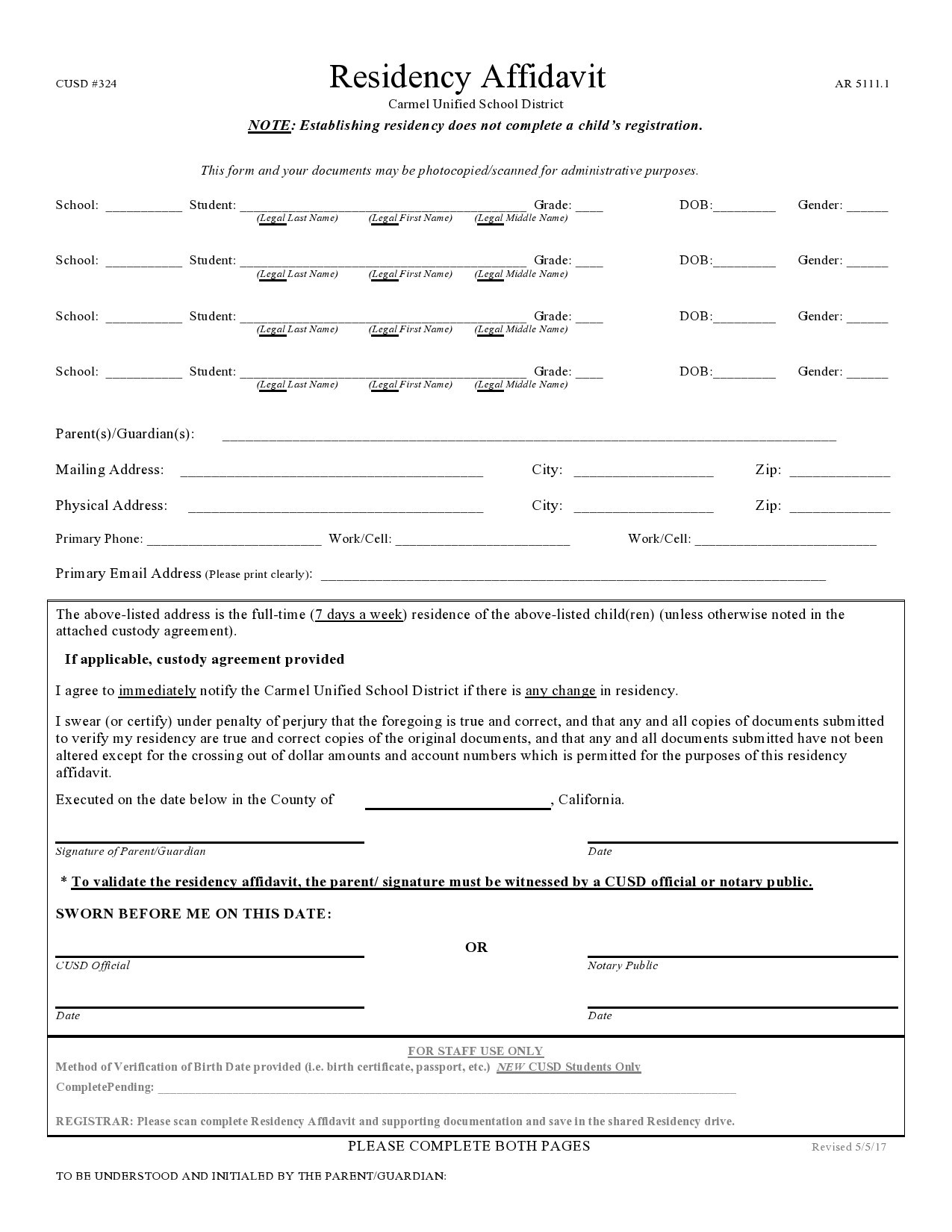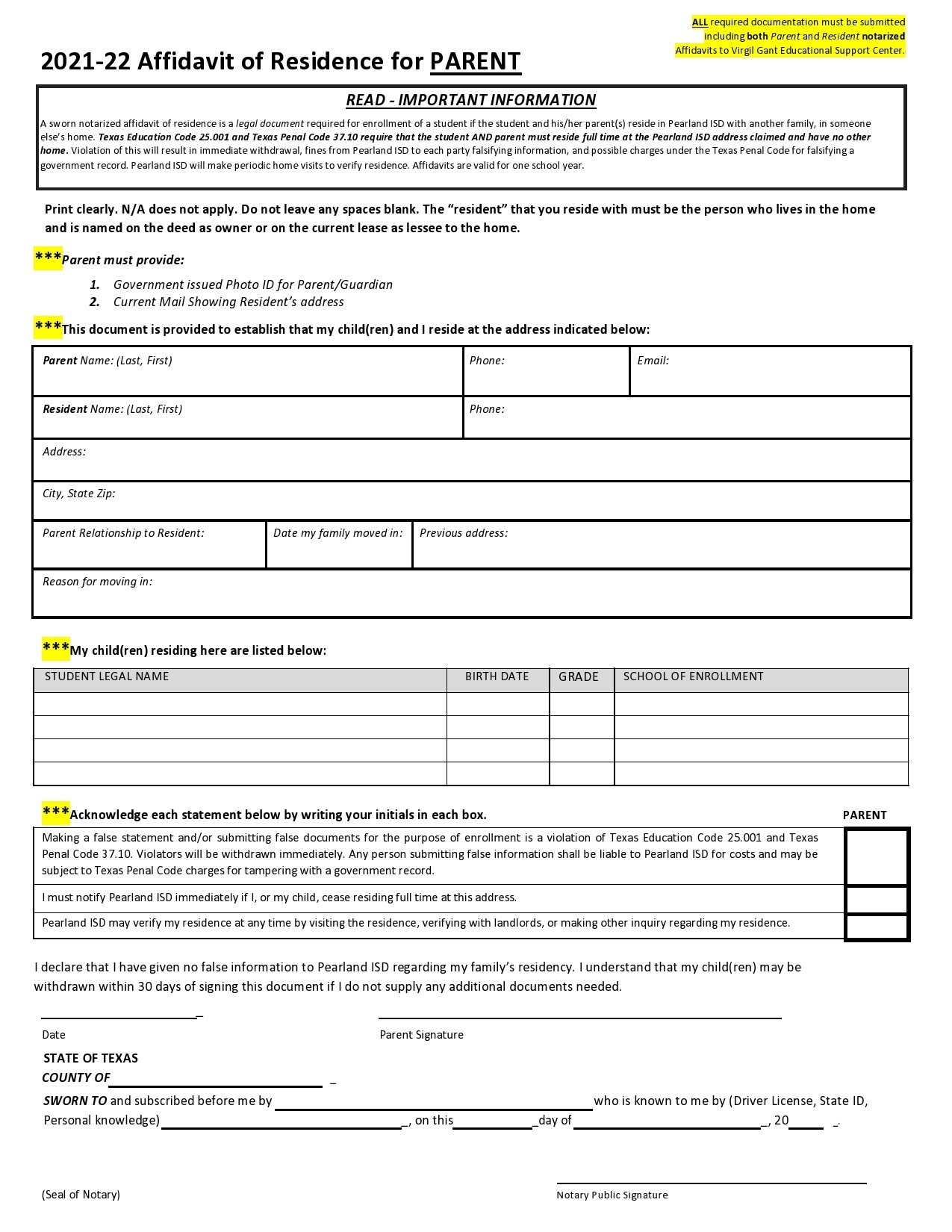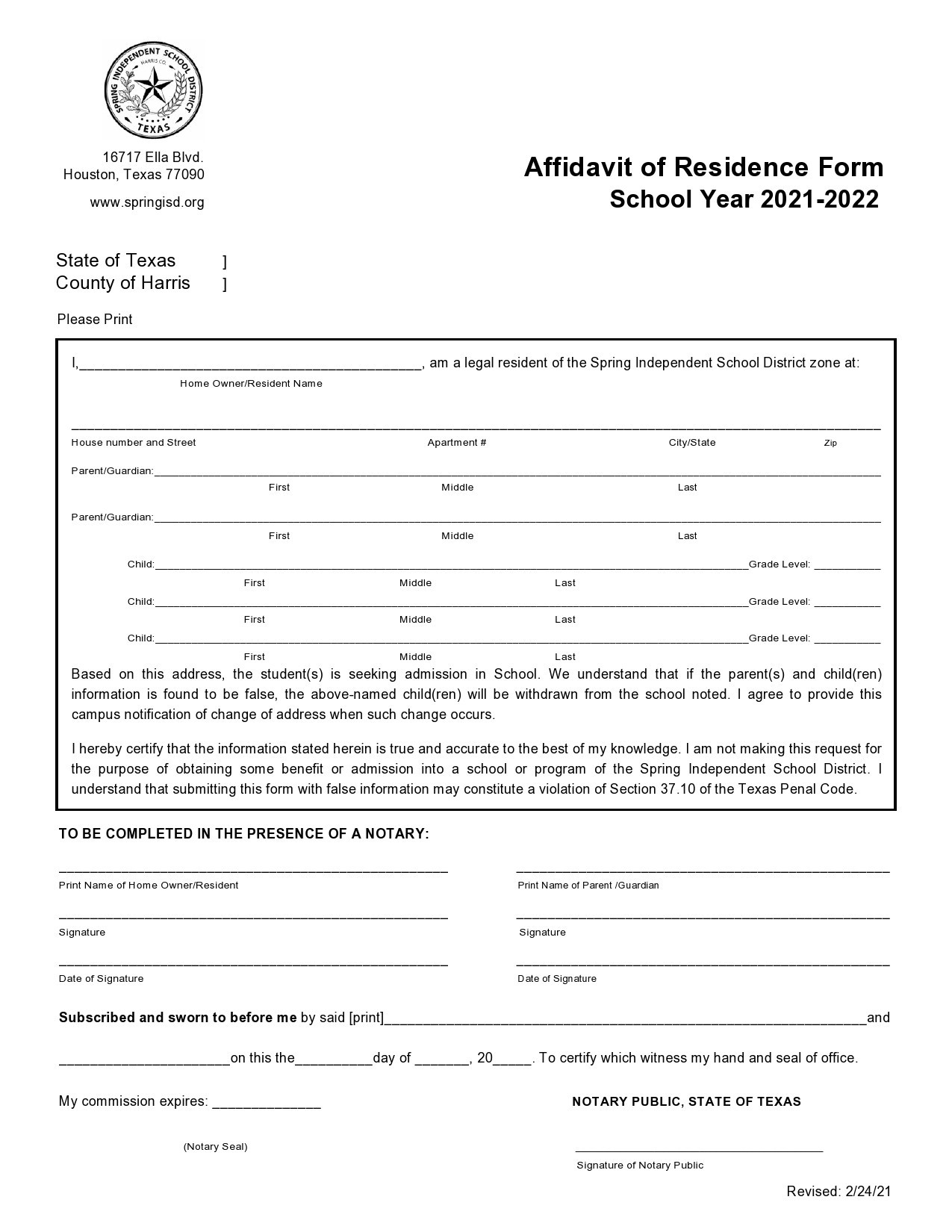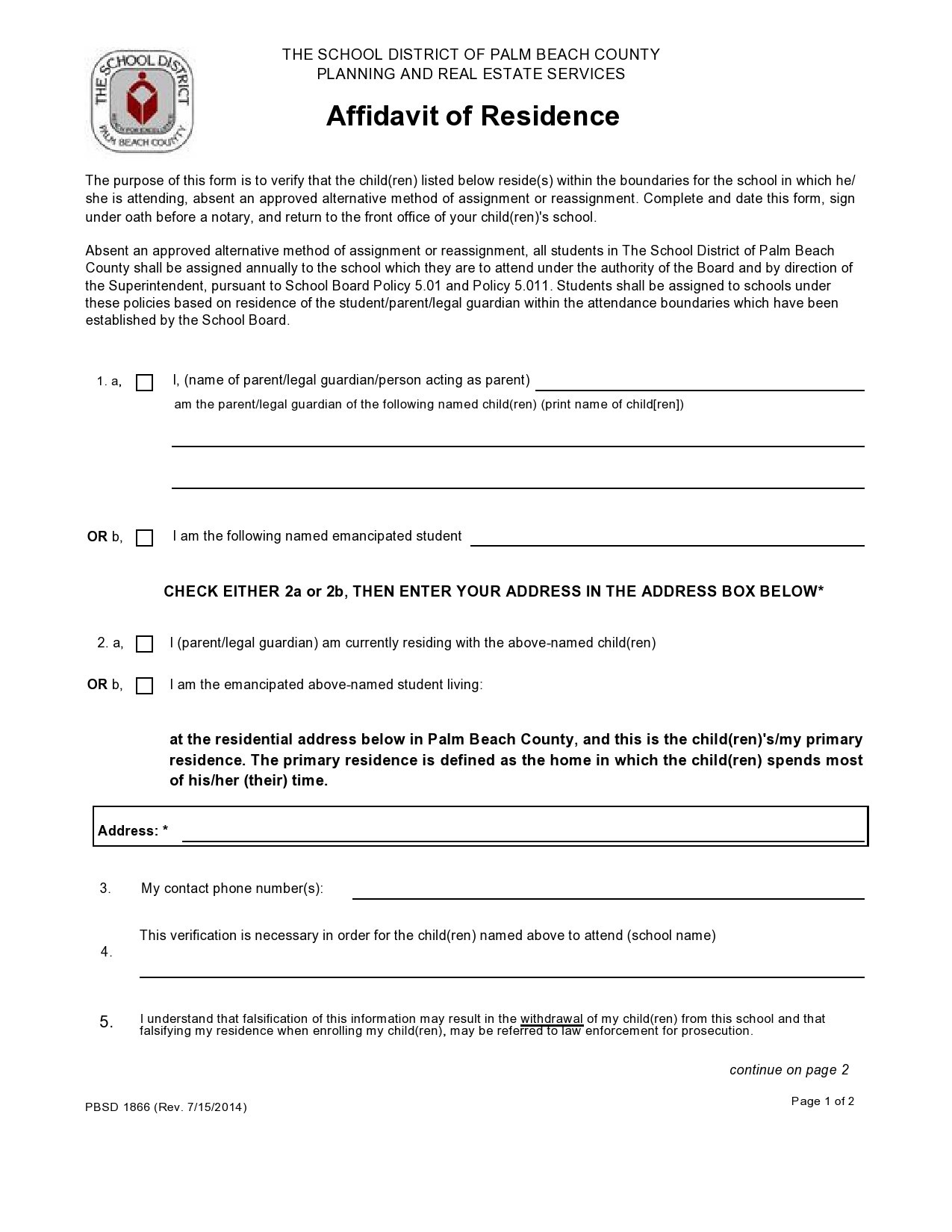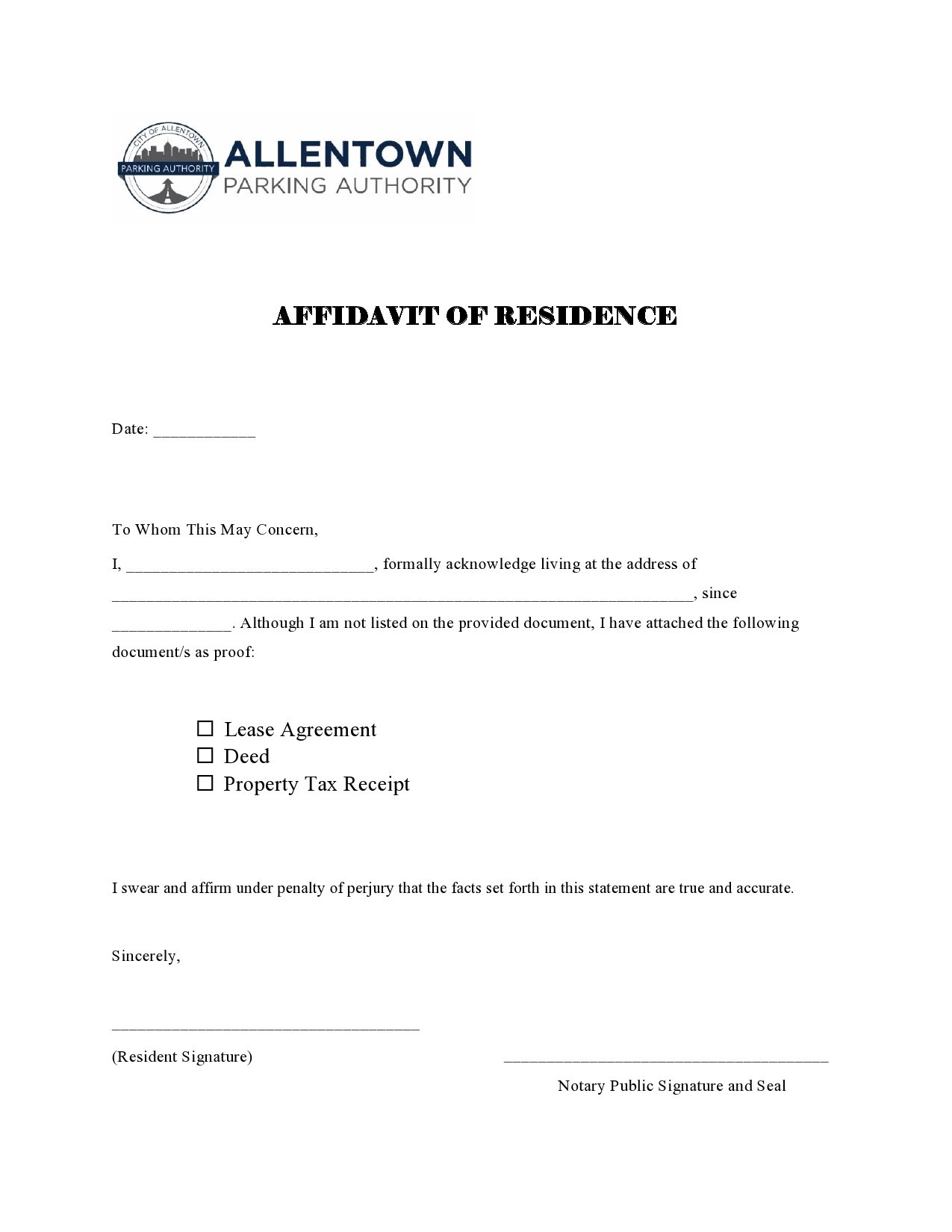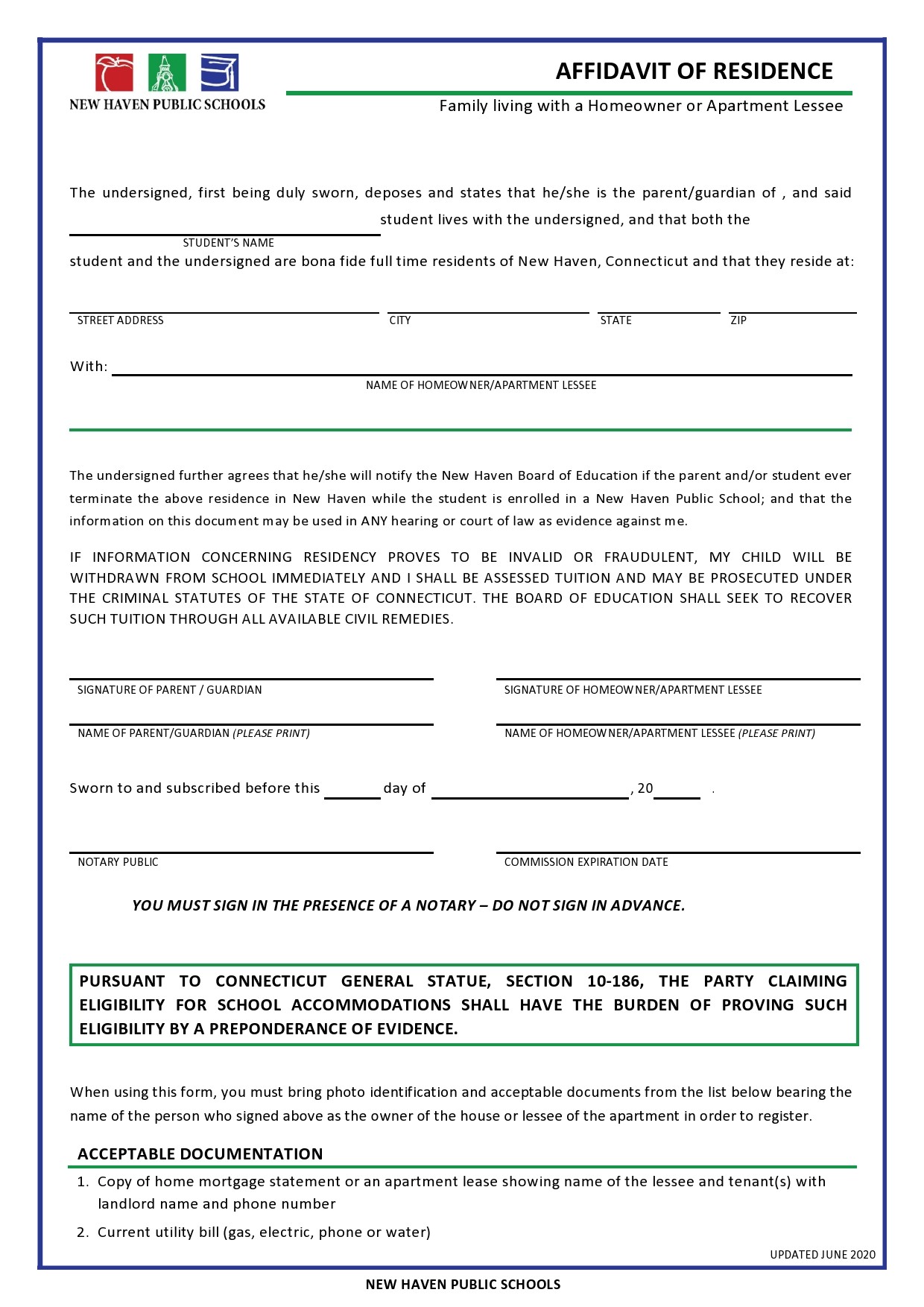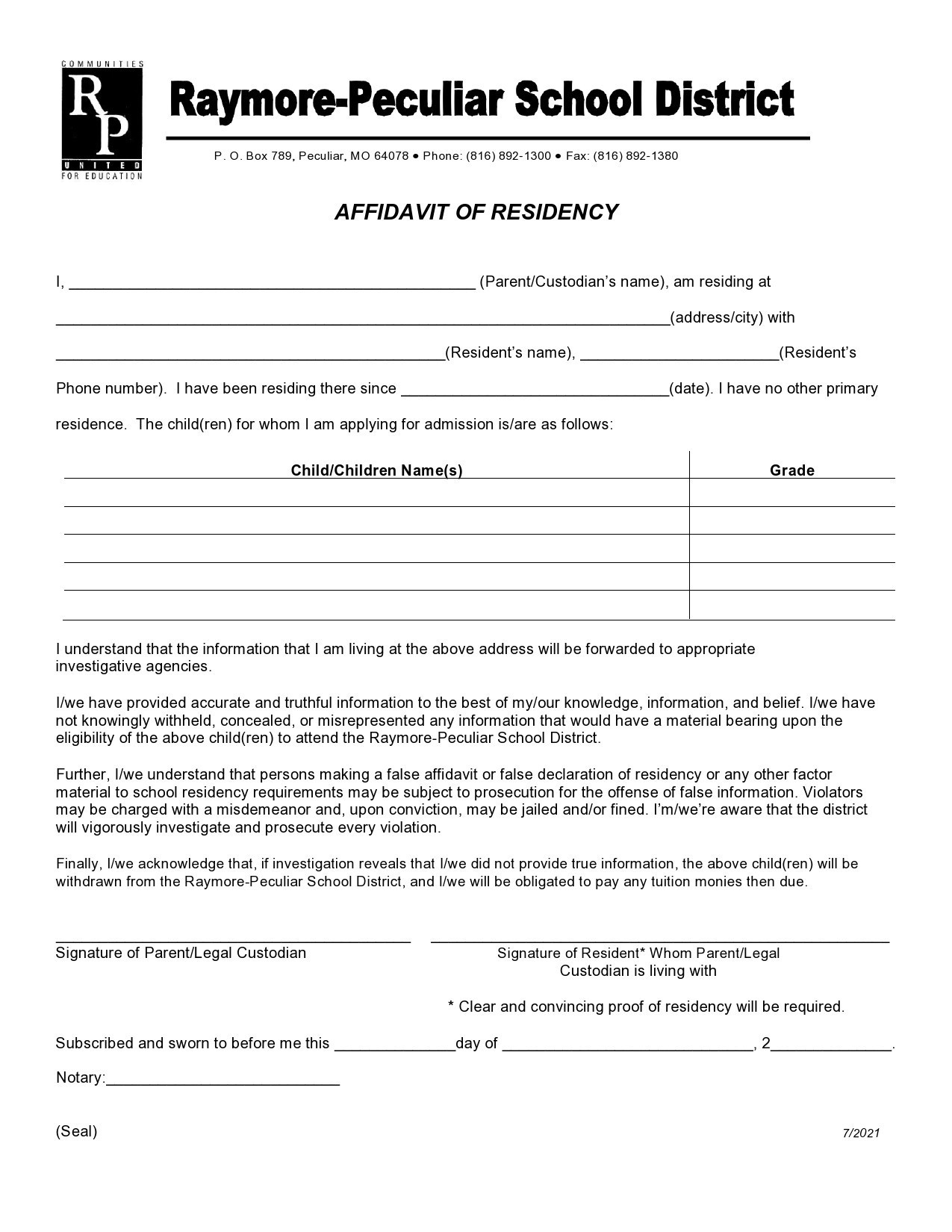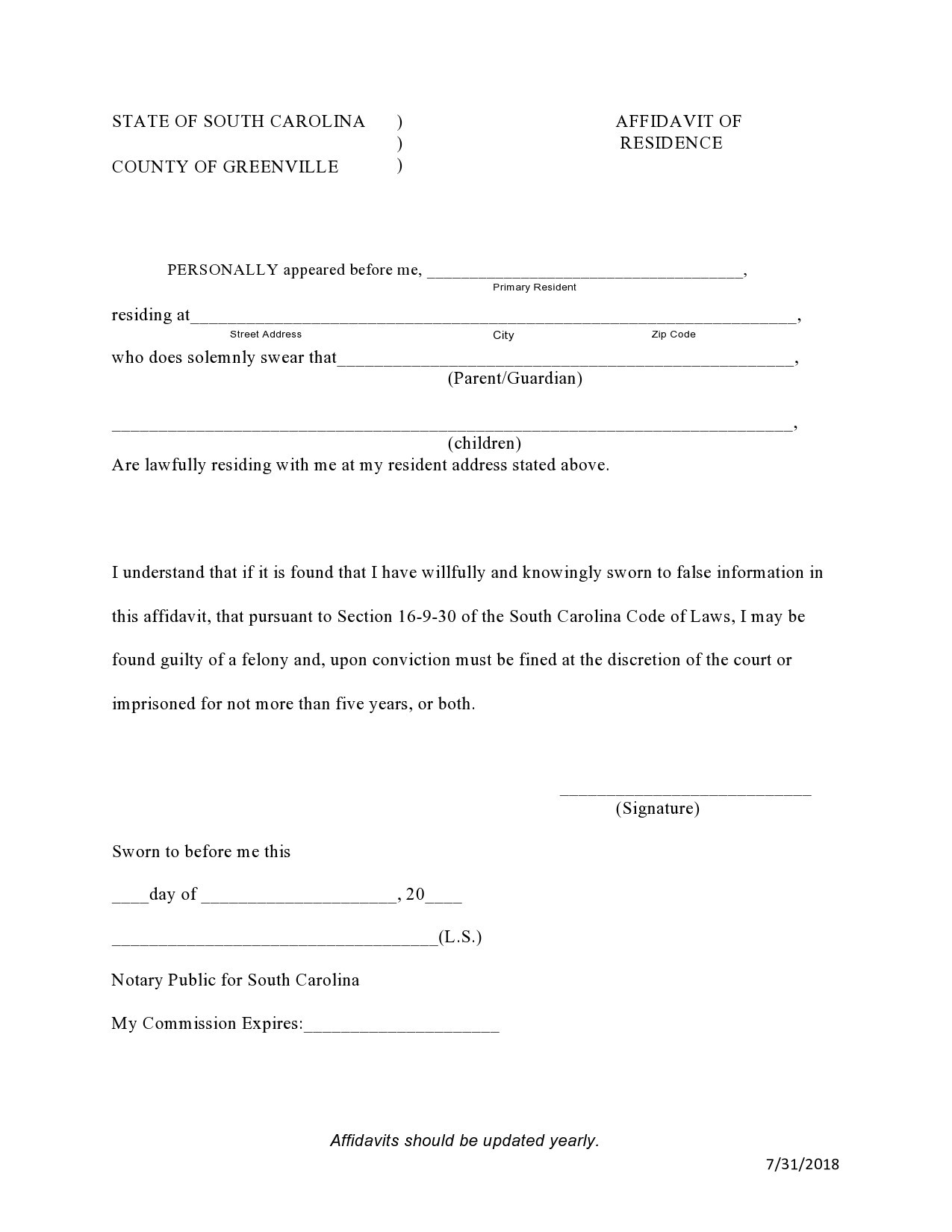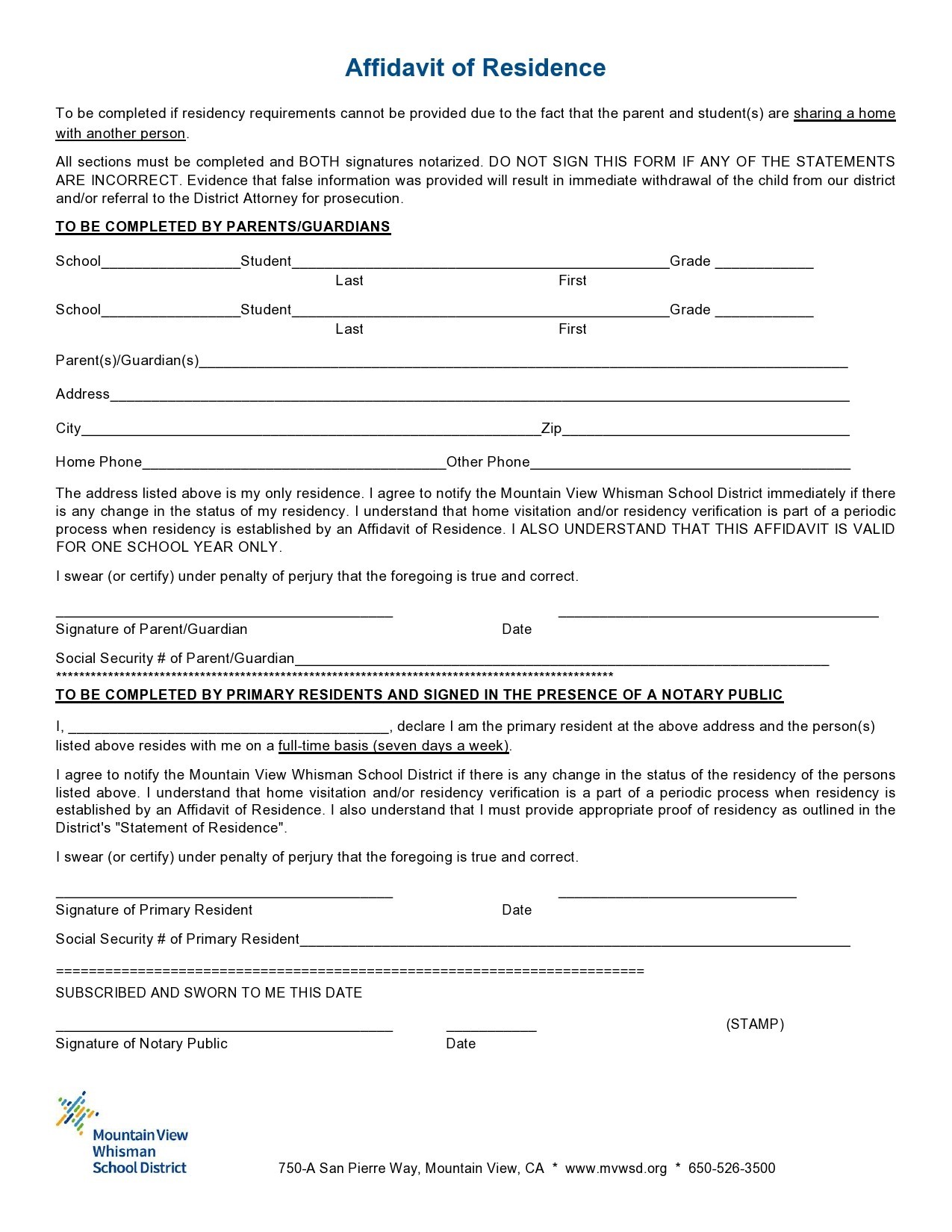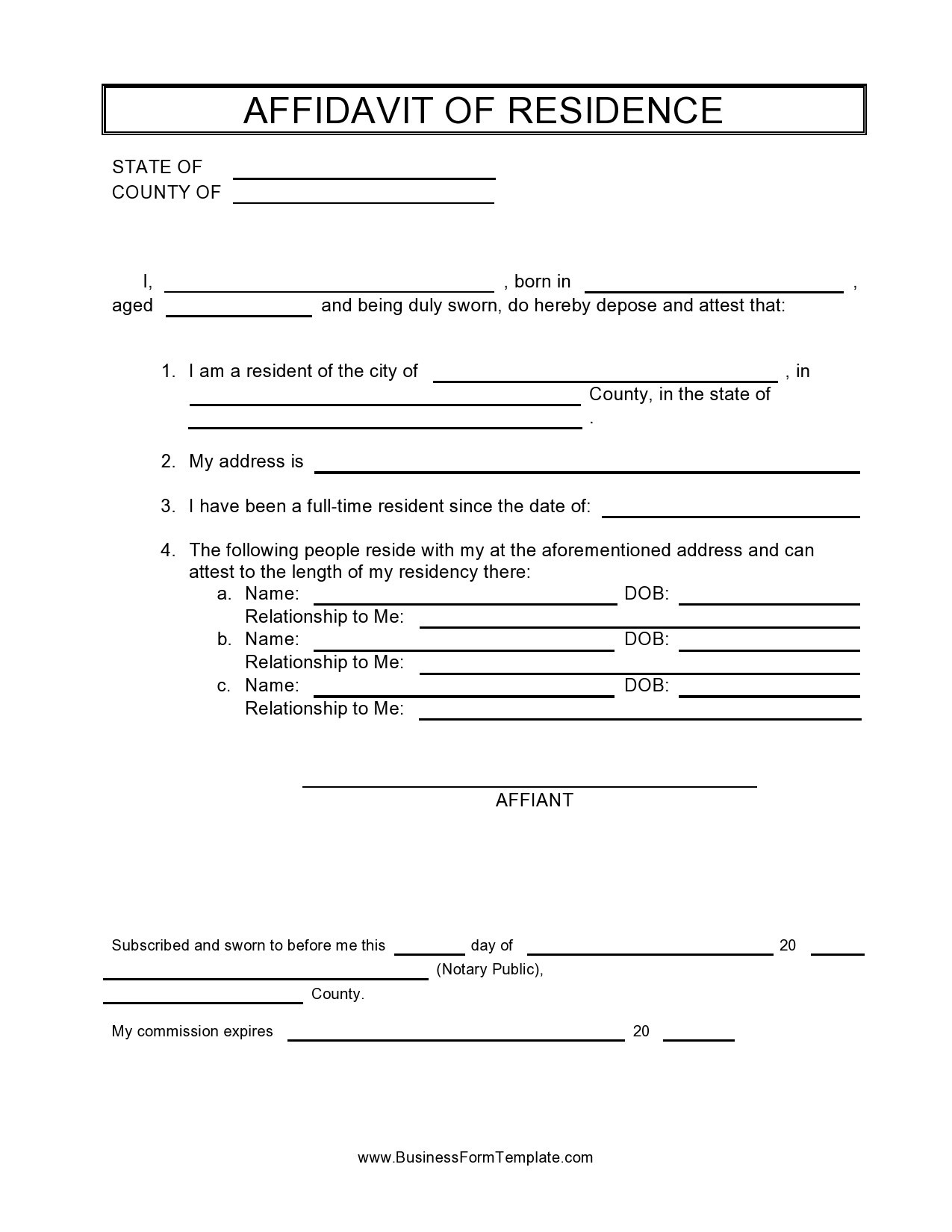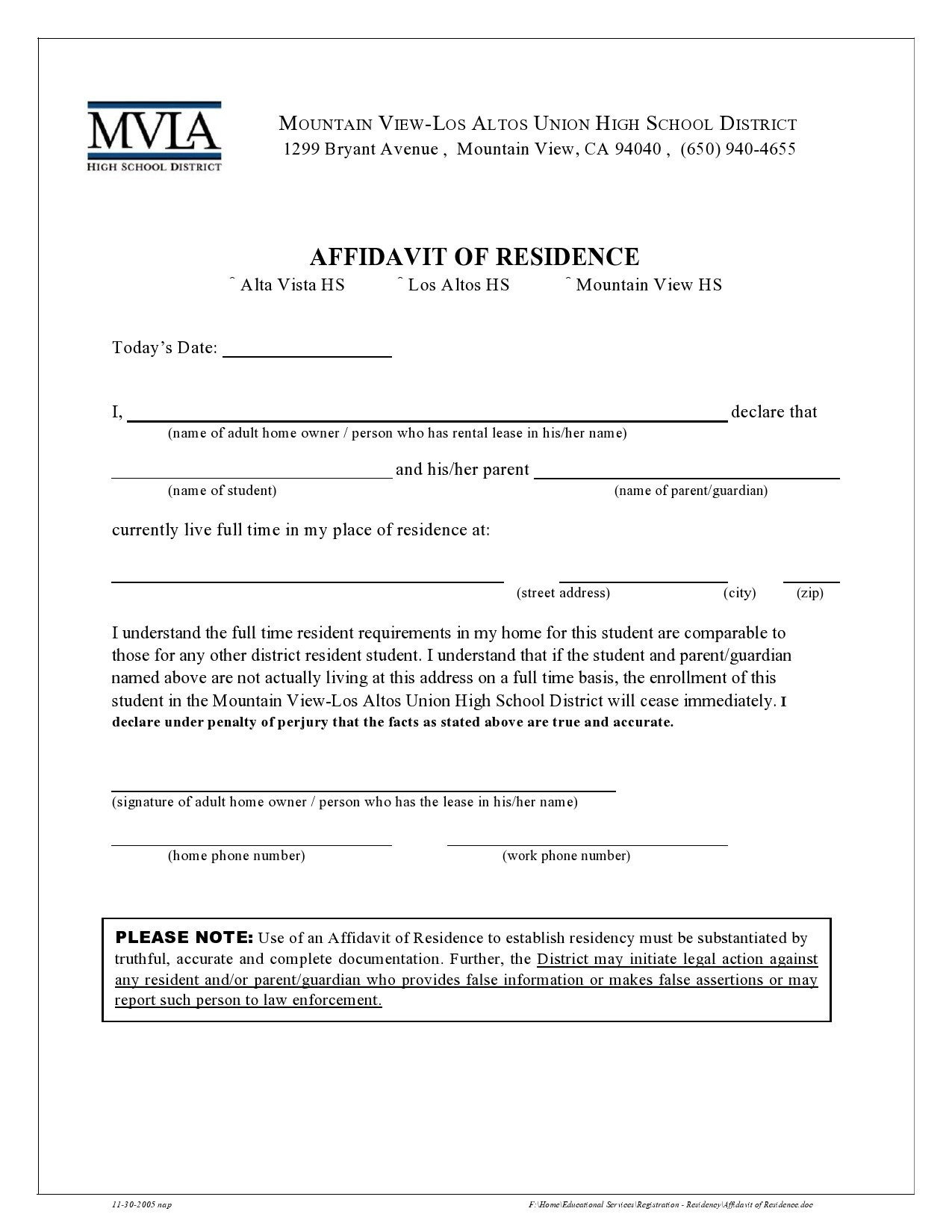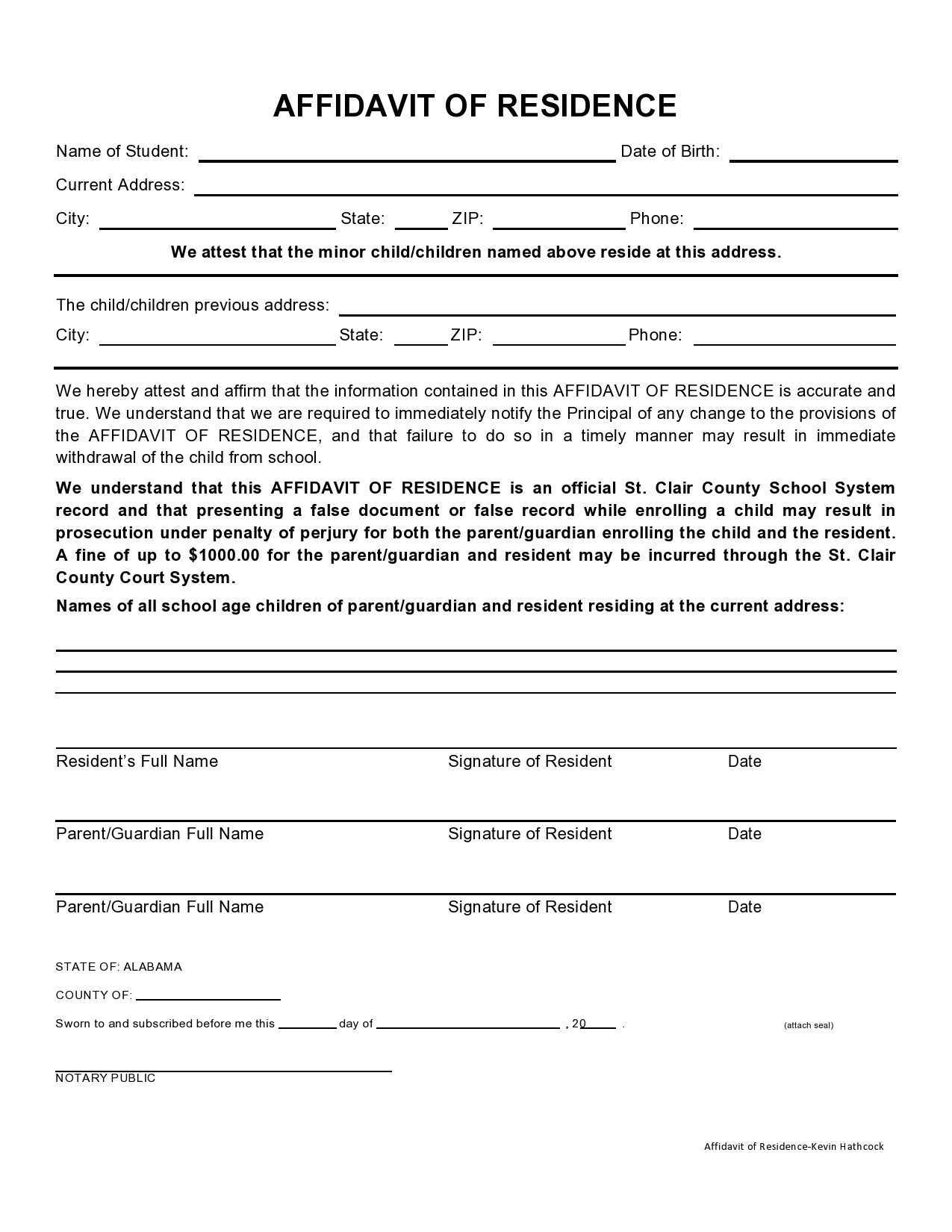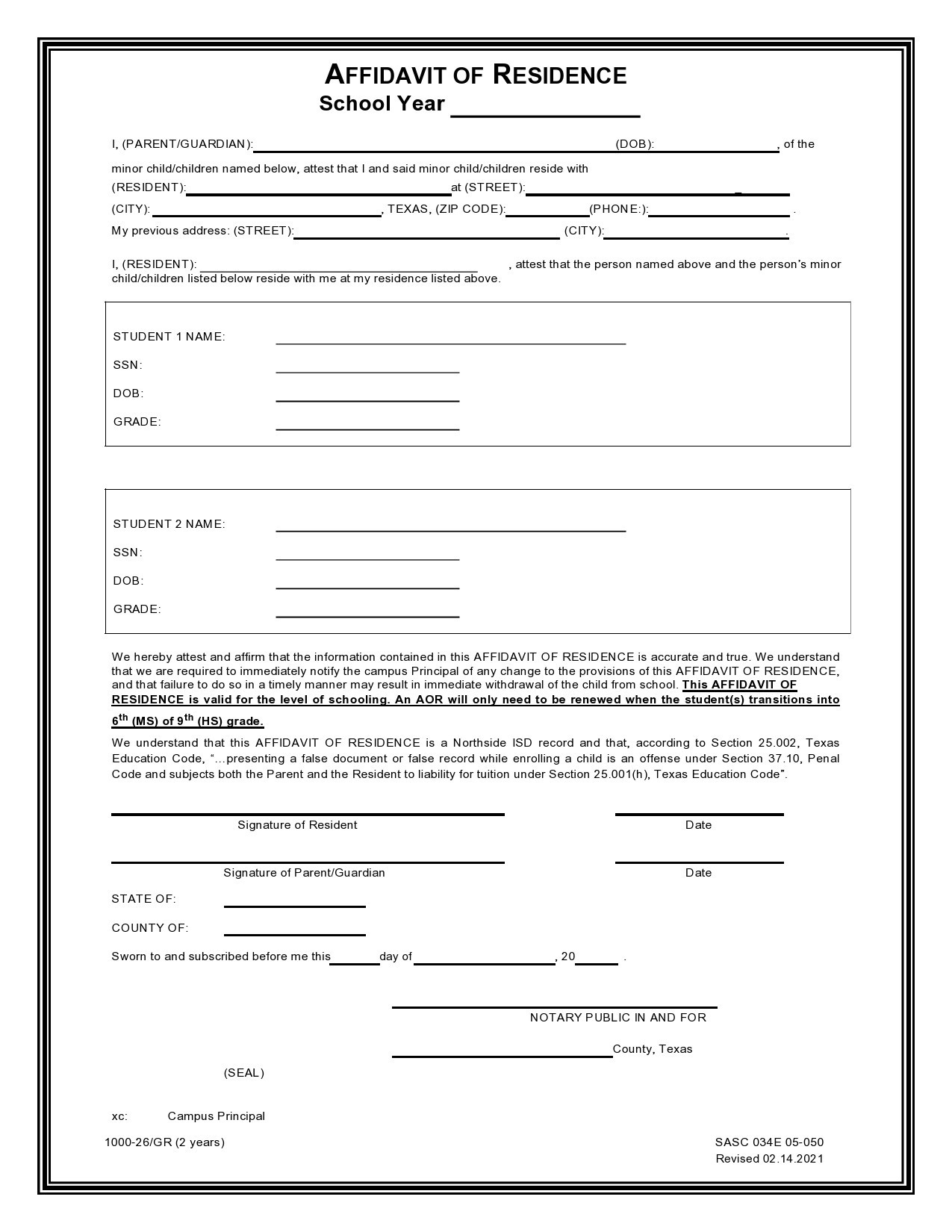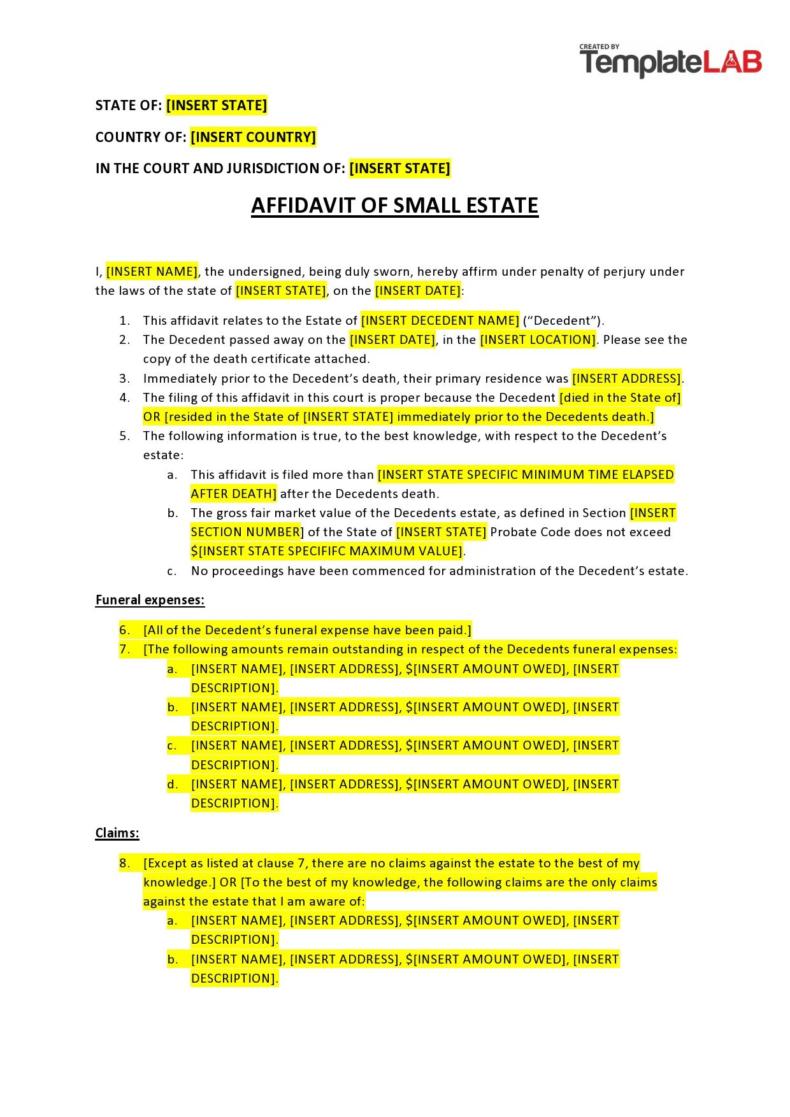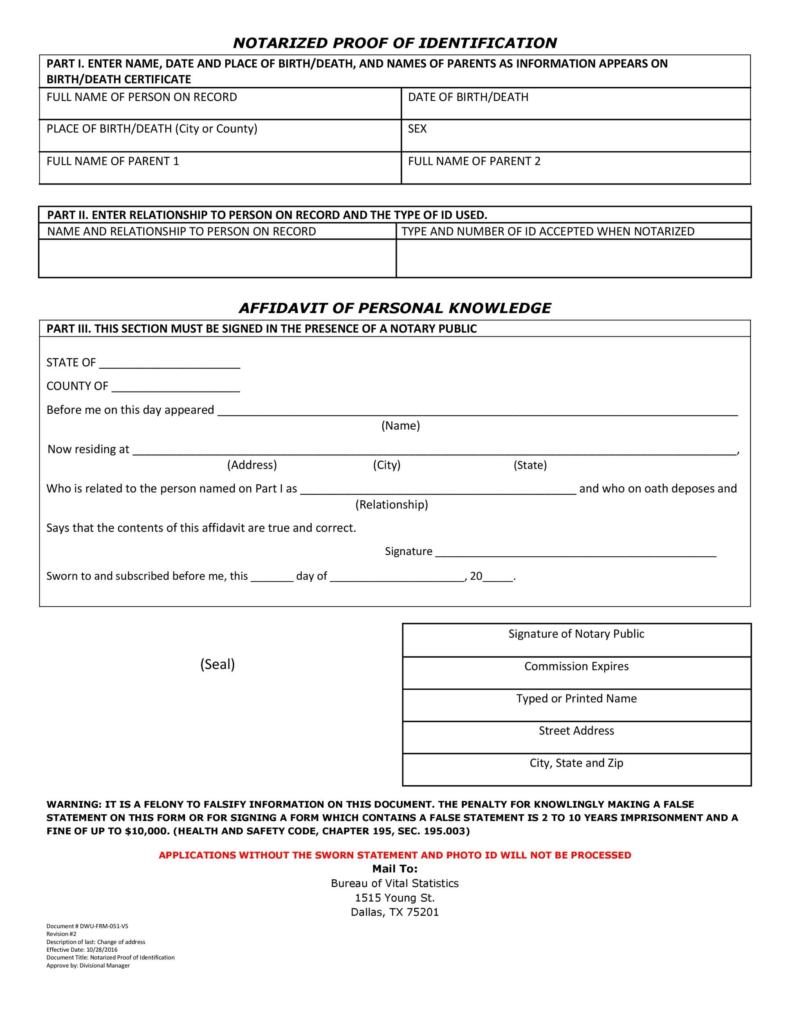There are situations when a person may be required to present an affidavit of residence. The document will provide proof that the individual lives where they are claiming to live. The proof of residency affidavit can be requested by a court, an institution of learning, or any other entity. They can also be used to prove that a deceased person was resident in a certain residence. In this case, their beneficiary will be asked to provide an affidavit of domicile.
Table of Contents
- 1 Affidavits of Residence
- 2 What is an affidavit of residence?
- 3 Notarized Affidavits Of Residency
- 4 Commonest terms that an affidavit of residency form contains
- 5 Can an affidavit be used as proof of residence?
- 6 How do you prove residency if you live with someone?
- 7 Proof Of Residency Affidavits
- 8 When is an affidavit of residency required?
- 9 How do you write a residency affidavit?
- 10 Details that must be included in an affidavit of residency form
- 11 Differences between an affidavit of residency and an affidavit of domicile
- 12 Affidavits Of Address
- 13 What can happen if you fail to present an affidavit of residence?
Affidavits of Residence
What is an affidavit of residence?
When a person is required to provide proof about their residence, the action they take is to go to a notary public and swear before them. There will be a swearing fee they will pay to the notary public. The notary will sign the document that confirms the person indeed lives in that residence.
The affidavit of residency form is a sworn document that a person uses to prove that they live in a specific residence. It is usually a simple document that must be signed before a notary public. Its uses are varied, such as when requesting a child to be admitted to a public school in a certain district.
Notarized Affidavits Of Residency
Commonest terms that an affidavit of residency form contains
The wording in an affidavit of residency form can be different depending on the type of template you choose. However, every affidavit of residency form will have the following common terms:
- Notary public
A notary public is a lawyer who certifies the proof of residency affidavit. The act of certifying it is called notarizing. Once the document is notarized, you can present it to the party that requested it.
- Residence
Residence means the place an individual is currently or was previously living. There are situations when you can be asked to present proof of your previous residence. This is applicable in situations such as when you want to rent a house in a new neighborhood.
A residence means a permanent living place regardless of whether you have rented or it’s your own home. As long as that is the place you call home, it is your residence. If you are staying in that place for a short time, you cannot call it a residence. An example is a hotel room, a holiday home, or when you have visited a friend or relative.
- Length of residency
Length of residency means the period you have lived in that residence. Some institutions might be strict about the time you must be resident in that place. Some might put a limit of 6 months on the minimum.
- Landlord
A landlord is a person who owns the property where you live. This is applicable if you have rented the property. In the proof of residency affidavit, the landlord may be required to sign, although it is not mandatory. It depends on the institution that is requesting it and its use.
Can an affidavit be used as proof of residence?
An affidavit of residence may be required for different purposes. It can be used in any of the following ways:
- Surety for bond
- Job application
- Visa application
- Opening a foreign bank account
- Registering a child in a public school
- Moving to a new rental house
The type of affidavit that is used to provide proof of residence is a notarized affidavit of residency. If it is not notarized, it cannot be used as valid proof of residency. No institution will receive your affidavit of address if it is not notarized.
How do you prove residency if you live with someone?
There are situations when your residence isn’t owned by you. It could be you live with your parents, relatives or friend. There are different types of documents you can use to prove your residency.
Your tax records
Your federal income tax forms include your names and physical address. Provide a copy of your W-2 tax to the institution. If you don’t have any tax form copies with you, you can request your employer to print one for you. Alternatively, ask the Internal Revenue Service to print an income transcript for you. It will show your name and address.
Financial statements
Your financial documents will show your name and address. Print copies and present them to the requesting entity. They may require the documents to be certified. In this case, you can visit a lawyer and request them to certify the statements. Alternatively, visit your financial institution and ask them to provide you with certified copies of statements.
The institutions can either be:
- A bank
- Credit union
- Credit card company
Make sure the statement includes your name and address.
Voting card
Your voter registration card may include your name and address. It is an official document that you can present as proof of residency. Some states do not include the voter’s address on the card.
Government-issued documents
Look for any document you might have from the federal or state government. They can be documents such as:
- Marriage records
- Social security letter
- Court records
Insurance records
Insurance records will have your names and address. These can be documents such as:
- Automobile insurance
- Health insurance
- Life insurance
It is not every institution that will accept these types of documents as proof of residency. Before you begin to organize how to get them, confirm with the institution whether they will be acceptable. If not, your final option is to provide an affidavit.
You may want to visit a notary public with the person you live with. Request if there is a way out to get a notarized affidavit of residency. If it is possible, the notary public might have to include your name and the name of the person you live with.
Proof Of Residency Affidavits
When is an affidavit of residency required?
Proof of residency affidavit is useful anytime there is a legal need to prove your current residency. Some institutions might only ask for other types of documents such as utility bills, driver’s licenses, insurance documents, or bank statements. Nevertheless, most institutions will strictly ask for a notarized affidavit of residency. The affidavit of residence can be used in the following ways:
- When you want your child to join a public school for the first time. Public schools only admit children who live within the school district. The school administration must confirm through a notarized affidavit of residency that the child’s parents are residents in that district.
- When transferring your child from one public school to another. This happens when you move to a new school district. The new school may ask the parent to show proof of their previous residency because they will still be new in their current residency.
- When applying for a driver’s license for the first time or after moving to another state. Each state has its requirements for driver’s license applications. The licensing department will ask you to provide a notarized affidavit of residency. Some states may also request the affidavit when a new citizen wants to apply for a parking lot in the state.
- When entering into a business deal that involves a large amount of money. The other partner/s may ask for a proof of residency affidavit. They will be interested in protecting their interests if the deal fails to work. Courts may require proof of residency.
- When joining college or university and your request for in-state tuition rates. Colleges and universities offer lower fees rate to students who are citizens in the state where the university is located. To be considered for interstate tuition rates, the student must provide an affidavit of residency to the university administration. If they are below 18 years, their parent/s will be asked to provide the affidavit.
- When registering for taxes. Some states will ask people applying for tax returns for the first time to provide an affidavit of residency.
- When registering for funds from public retirement programs
- When applying to receive medical benefits from a state health program. Each state has a health program created to support its citizens. The citizens are required to apply for the benefits. One of the requirements is for them to provide a certificate of residency.
- When verifying child custody after a divorce
How do you write a residency affidavit?
There are different types of templates available online that you can use to fill an affidavit of residency. After filling out the form, you must present it before a notary public for notarization. To write an affidavit of address, follow these steps.
Fill in your personal details
Start by filling in your personal details in the affidavit form. Provide the following details in this section:
- Your state of residency
- County
- Your name
- Date of birth
- Your social security number
- Your address
- How long you have lived in that residency
Details of people who can prove your residency
In this section, provide detailed information about people who can be contacted to confirm you live in that residence. You may want to avoid including the name of your spouse in this section. Instead, provide the names of neighbors, landlords, friends, etc. These are people who can be called witnesses. It is good to inform them or request them to allow you to include their names. Provide at least three names of witnesses. The details in this section should be as follows:
- Witness name
- Relationship with you
- Contact
Write the statement of truth
The statement of truth declares that the information provided is true to the best of your knowledge. The statement states that the information is complete. It also assures the reader that the affidavit is not partial.
Sign the form
Your next step is to sign the affidavit of address. You should sign and include the date when you signed it. Many people forget to sign the affidavit, which makes it invalid. The affidavit of residency is written in the first person.
Use the words I and not we, you, or us. State each description as a separate paragraph. Provide the fact descriptions clearly and concisely. If you have any supporting documents like utility bills, bank statements, or government documents, refer to them.
Notarize the affidavit of residency form
Your final part is to visit a notary public and swear before them. The notary public will sign, stamp, and write the date. After this, your affidavit of residency form will be ready to be presented before the institution that requested it.
Details that must be included in an affidavit of residency form
Proof of residency affidavit must contain the following details:
- Names: It must contain your full legal names. Do not include an alias name in the affidavit.
- Address: It must include your current residence. Describe by indicating the state, county, city, and street.
- Residency length: It must indicate how long you have lived in that residence.
- Witnesses: Write at least three witnesses who can confirm that you live in that residence.
- Signatures: The document must contain your signature and the signature of the notary public.
Differences between an affidavit of residency and an affidavit of domicile
An affidavit of residence confirms that the individual resides in the residence they claim to live. It can be requested by different entities such as banks, schools, courts, employers, etc. An affidavit of domicile involves a deceased person. Their beneficiary is asked to provide an affidavit of domicile to prove that the deceased person was residing in the place of residence.
An affidavit of residence has different names:
- Notarized affidavit of residency
- Proof of residency affidavit
- Affidavit of residency form
- Affidavit of address
- Notarized residency letter
- Residency affidavit
Affidavits Of Address
What can happen if you fail to present an affidavit of residence?
An affidavit of address serves different purposes, such as school enrollment, getting employment, or a driver’s license. If an individual fails to provide it to the relevant institutions, they will not get the services they need. For example, their child cannot be enrolled in a public school or they could miss registering their driver’s license.
Sometimes an individual can be tempted to use the address of a relative. They could also be tempted to provide false information. Since it is a sworn document, the benefit the person had received as a result would be withdrawn immediately. If it is a child who had been admitted to school, they would be withdrawn. The parent will be taken to court to answer charges of making a false sworn statement.

